Ocean Albatros Cruises to East Greenland
By Anne Kalosh
Now is the time of year when a handful of expedition cruise ships flock to East Greenland, home to the world’s largest national park.
It offers breathtaking, otherworldly beauty on a grandiose scale. Gigantic glaciers. Towering icebergs. Massive mountains. Deep fjords. The northern lights.
If you’ve cruised to Glacier Bay in Alaska, impressive as that is, the glaciers in East Greenland dwarf it. The geology is fascinating and varied. At times I felt like I was in a flooded Grand Canyon. But mostly Greenland was unlike anything else I’ve seen, including Antarctica.
There is intimate beauty, too. While crunching across the tundra, I bent down to eye exquisite, lacy lichens, ice patterns like (un)stained glass, seashells and fluffy white cotton grass.
East Greenland is also rich with exploration history and remains a wild place, largely unpopulated. In the park, the only dwellings are rustic camps or huts to shelter sled patrols or researchers.
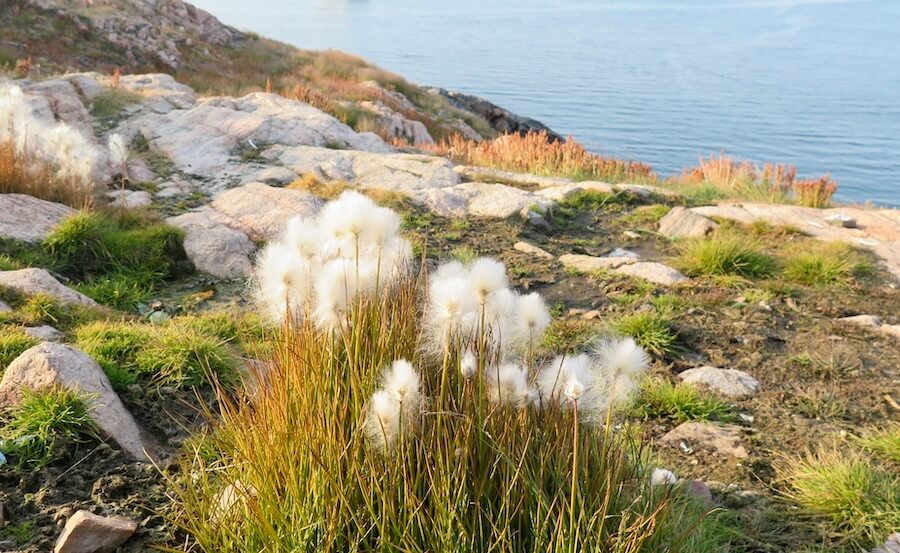
White cottongrass. * Photo: Anne Kalosh
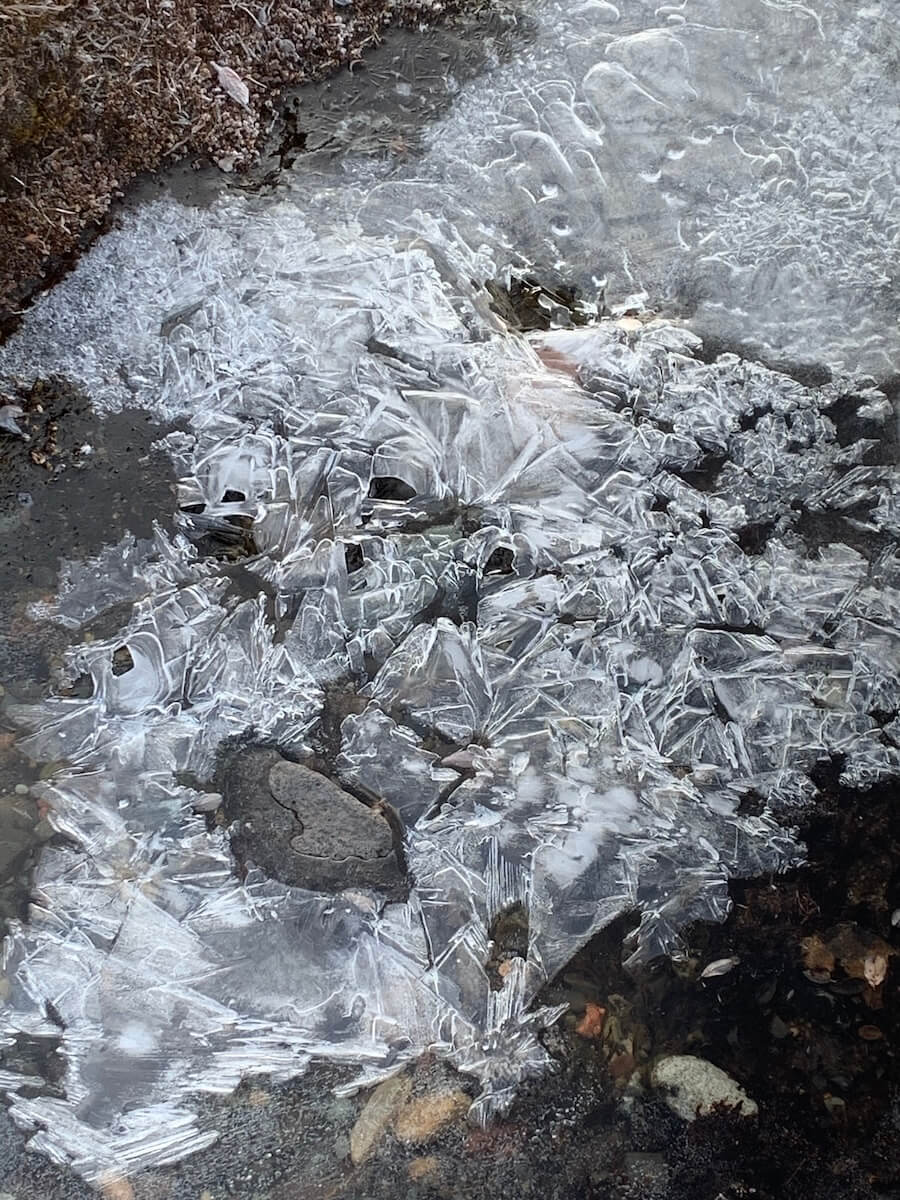
Beautiful ice patterns under foot. * Photo: Anne Kalosh
I’ve always been intrigued by Greenland, especially having lived in Scandinavia and read Viking history, and I’m interested in Inuit culture. The Danish writer Peter Høeg’s 1992 novel “Smilla’s Sense of Snow,” a crime thriller partly set in Greenland, also resonated with me.
One year ago (September 2023), I traveled with the most experienced Greenland expedition operator, Denmark’s family-owned Albatros Expeditions, aboard its brand-new 174-passenger Ocean Albatros.
An immediate assurance I’d made the right choice was reading the bios of the expedition team. All seasoned hands, some live in Greenland, and our expedition leader served in the elite Sirius Dog Sled Patrol that surveils the far north.
Over eight nights, on a roundtrip from Reykjavik, Iceland, I had a great adventure cruising East Greenland on Ocean Albatros, starting with a spectacular, hours-long northern lights display with everyone on the top deck aahing in delight like a group orgasm. We spotted whales our first morning out on the crossing to Greenland.
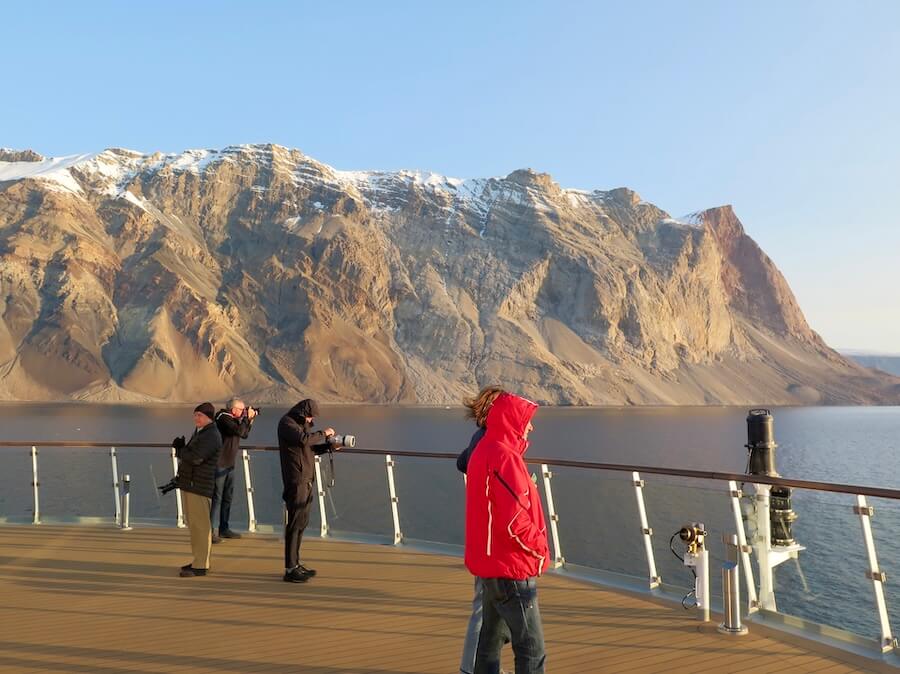
Rugged, ever-changing scenery and plenty of deck space to spread out. * Photo: Anne Kalosh
Early wake-up calls summoned us to breakfast and nonstop views. Dawn would break on an orange sherbet horizon to reveal dramatic vistas of colossal rock formations with names like Bastion and Teufelsschloss (Devil’s Castle), and icebergs in fanciful shapes bobbing before backdrops of snow-dusted mountains.
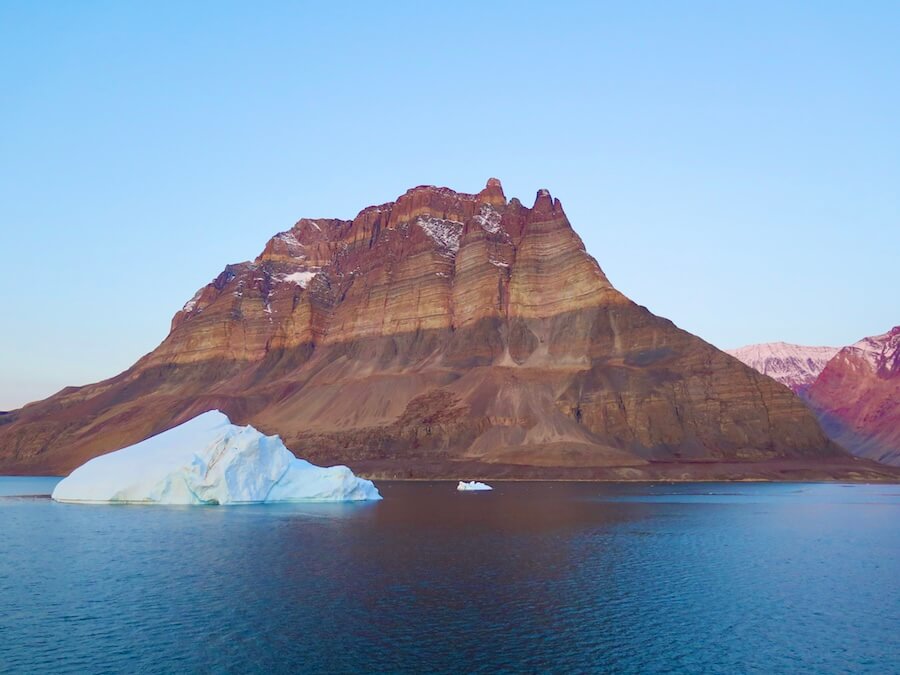
Teufelsschloss, with its bright bands of sedimentary rock. * Photo: Anne Kalosh
I expected brutal cold. It was cold though not terribly. Dressing in the layers, parka and waterproofs advised by Albatros Expeditions proved adequate. We had mostly glorious weather all the way. And on one spectacularly calm afternoon I was mesmerized by mirror-like reflections in the water.
Getting to know fascinating fellow travelers including the expedition team; making a friend in Ittoqqortoormiit, the one town we visited; and kayaking with a Greenlandic woman were among the highlights. There were wonderfully engaging lectures about photography, polar bears, the northern lights, the explorers who competed to claim Greenland, geology, icebergs, climate change, lichens and what daily life is like in a Greenland town.
The most gripping narrative was our expedition leader Kim’s on his military service in the Sirius Patrol, when he and a partner spent months on the move in winter, skiing alongside teams of sled dogs pulling all their food, supplies and tents and with dramas sad (the lead sled dog killed) and happy (the birth of pups).
And we had our own drama. At our first wilderness landing, a logistic support site for the Sirius Patrol, things were amiss — containers toppled and equipment strewn in the water. What in the world could have happened?
Subscribe to our monthly small ship cruise email
Subscribe to QuirkyCruise.com for monthly curated newsletters highlighting our top small cruise ship reviews, round-ups & offers!
International Complement
Ours was an expedition on a sturdy but nimble and very comfortable ship with good food, friendly service and a terrific 15-member expedition team.
Since Albatros is a Danish company, many of the passengers were Danish, with the rest a mix of Americans, Britons, Germans, Dutch, Japanese, Chinese, Australians. It is an English-speaking shipboard experience, but passengers are assigned to color-coded groups for Zodiac excursions mainly by language.
The Danes were fun to travel with, welcoming and instantly switching to English around non-Danish-speakers.
The expedition team came from Denmark, Norway, Germany, France, Poland, the U.S., Canada, Argentina, South Africa, Australia and China.
The hotel department was mostly Filipino and Indonesian. The captain was Panamanian.
A Grounding of Sister Ship Ocean Explorer
The day I embarked in Reykjavik, news broke that a sister ship of Ocean Albatros, operated by another company, had been re-floated after getting stuck in mud and silt for several days in Northeast Greenland National Park, where we were heading.
Ocean Explorer was freed with the help of a Greenland research vessel. There were no injuries or environmental damage, but the incident raised concerns about expedition cruising safety.
I haven’t seen an accident investigation report, however someone with knowledge of the incident told me climate change may have played a role, with moraine from melting glacial ice creating an unstable seabed in an area that was poorly charted.
Once again, I felt assured sailing with Albatros Expeditions thanks to its experience in this remote place.
Magnificent Northeast Greenland National Park
Most of Greenland — the world’s largest island — is covered by an ice sheet, the second largest on the planet after Antarctica. Towns hug the coastline, and Greenland’s total population is only 56,600 and concentrated in West Greenland, where most cruises (and all the bigger ships) go.
East Greenland is almost entirely wilderness.
My Ocean Albatros voyage was to Northeast Greenland National Park, sprawling over 972,000 square kilometers/375,291 square miles — almost the same area as Spain and France combined and more than 100 times larger than Yellowstone National Park, according to Visit Greenland.
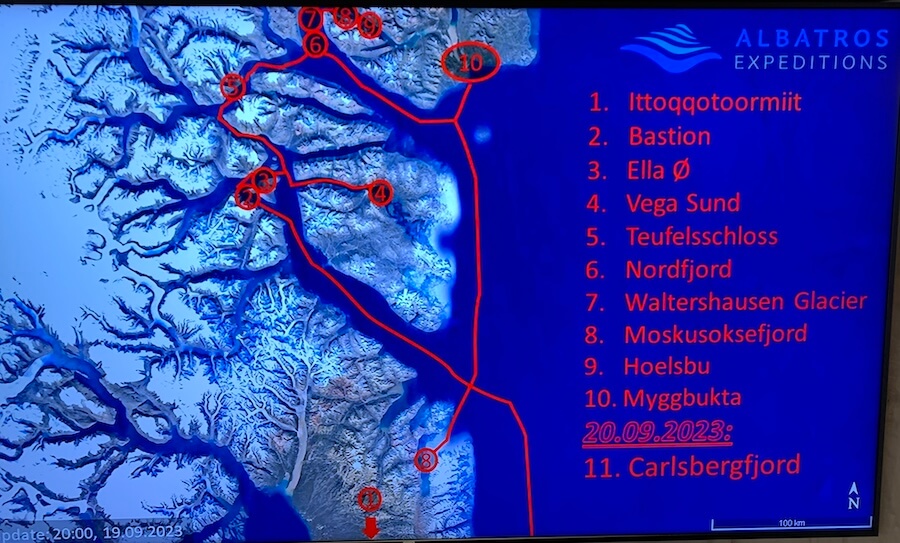
Our journey charted. * Photo: Anne Kalosh
The park is home to polar bears, Arctic wolves, walrus, narwhals, musk oxen and lemmings. Just two bird species stay year-round; others migrate.
Nobody lives there, apart from personnel at a few meteorological, research and military stations. There are no roads, harbors, commercial airports, hotels, guesthouses or accommodations.
Ittoqqortoormiit, population 360, was the only town we visited. With the park to the north and the world’s largest fjord system, Scoresby Sund, to the south, it is Greenland’s most isolated town.
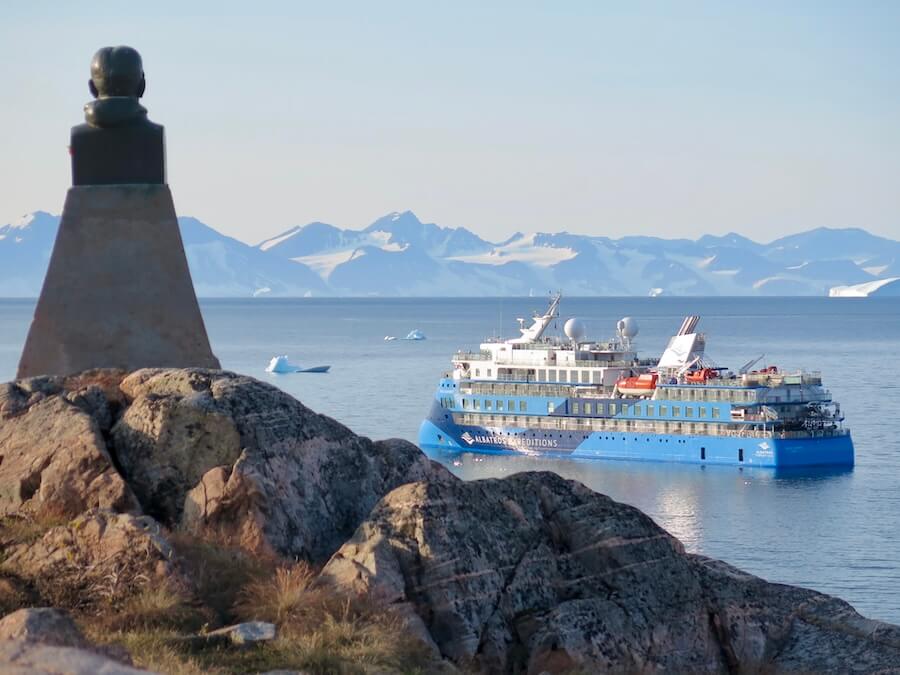
Ocean Albatros off Ittoqqortoormiit, observed by a bust of explorer Ejnar Mikkelsen, the settlement’s founder. * Photo: Anne Kalosh
Day 1 — Embarking in Reykjavik for My East Greenland Cruise on Ocean Albatros
At 8,181 gross tons and 104.4 meters/343 feet, Ocean Albatros is small enough to dock in central Rejkjavik at Miðbakki, the Old Harbor.
When I arrived on the airport bus, the sturdy blue ship with its inverted X-BOW — a design that promotes better seakeeping and a quieter ride — was drawing curious onlookers.
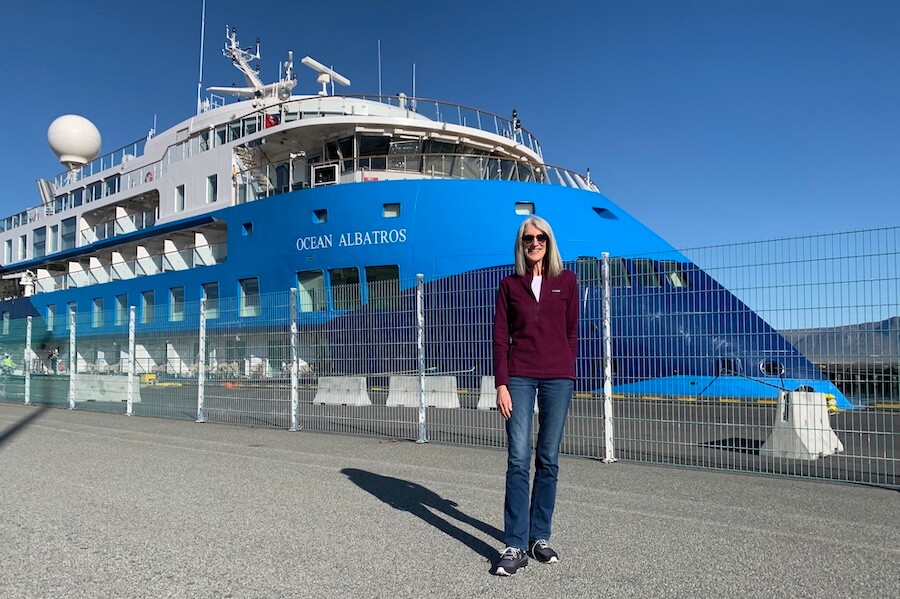
Day 1 -Anne embarking at Reykjavik, Iceland, where she got a first look at that distinctive Ocean Albatros X-BOW
Embarkation consisted of giving our name and cabin number at the gangway and putting a tag on our bags, to be carried aboard by the crew. Check-in took just minutes in the lounge, all very efficient. The outgoing Oliver, hotel manager, welcomed me by name.
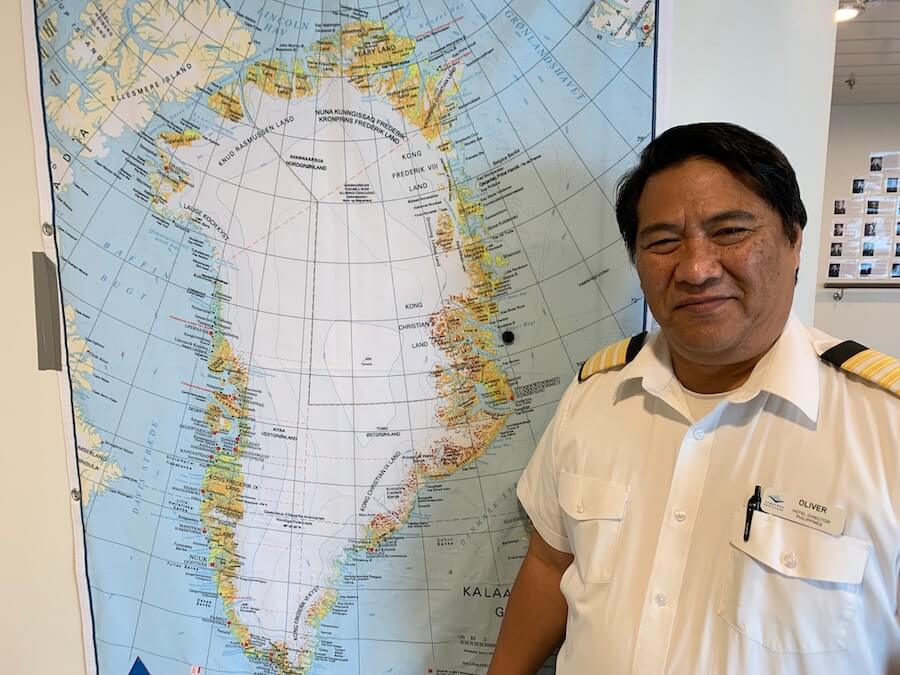
Oliver, the friendly Ocean Albatros hotel director. * Photo: Anne Kalosh
I gasped when I opened the door of my balcony cabin, #436, on a lower deck, aft, near the staircase to the mudroom. This is the ship’s standard/most numerous cabin category (C, superior balcony, approximately 24 square meters/258 square feet including balcony).
I wasn’t expecting it to be so spacious (other cruise lines may categorize this a mini-suite), with a queen bed, large desk, sofa, two hanging closets and plenty of drawers and shelves for storage. The bathroom (shower only) had a heated floor. My balcony was just above one of the hatches where the Zodiacs loaded from the mudroom, very convenient for our frequent outings.
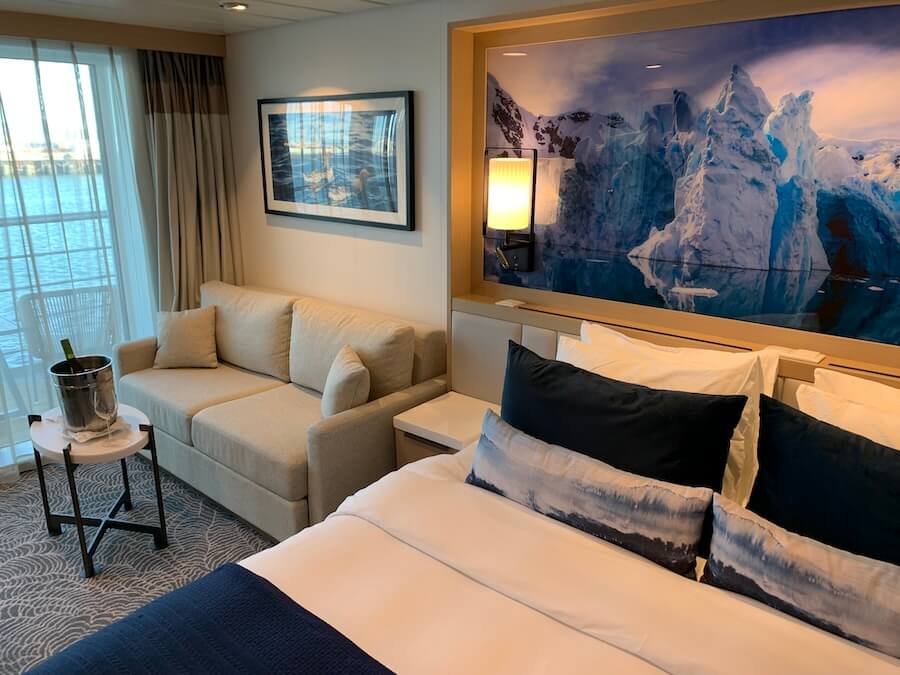
My cabin bed and sofa. * Photo: Anne Kalosh
Most stunning was a panoramic glacier photo over the bed. One ominous sign, though: the desk chair and balcony furniture were chained to the floor.
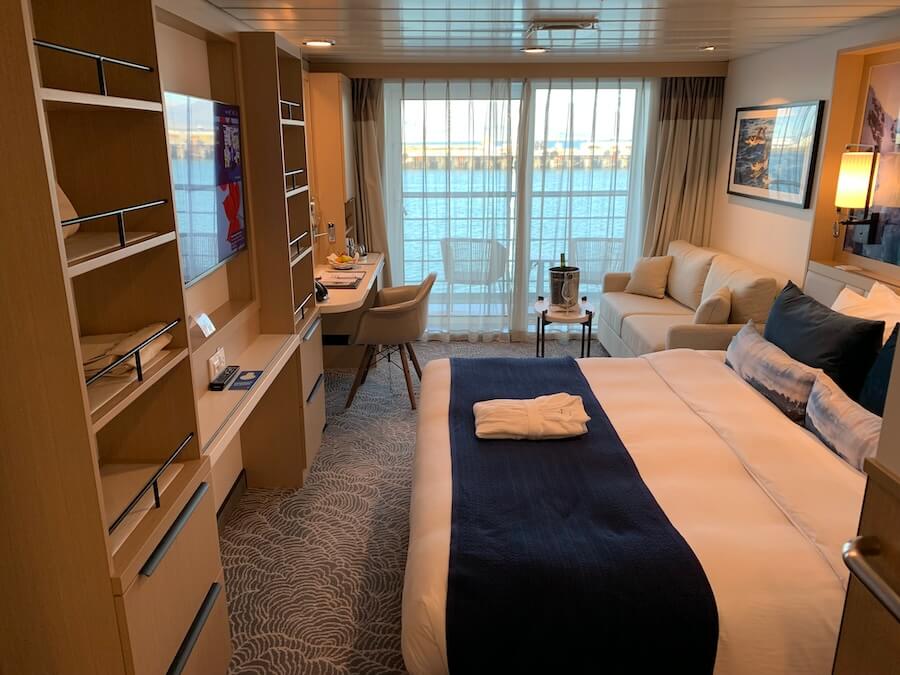
My comfortable cabin. * Photo: Anne Kalosh
The mini-fridge was stocked with water, sodas and beer. Other touches included a fresh fruit basket, bathrobe and interactive flat-screen television.
Ocean Albatros is one of the nicest expedition ships I’ve been on — very comfortable, elegant without being fussy, bright, easy to navigate, open to the views and with lots of observation points.
It has an open-seating main dining room and smaller upper-deck casual buffet venue (that turned into a hot rocks restaurant, by reservation, no charge, at night), a main lounge/lecture theater with big screens and adjacent bar, an observation lounge, small gym, ocean-view sauna, boutique, outdoor pool and two hot tubs.
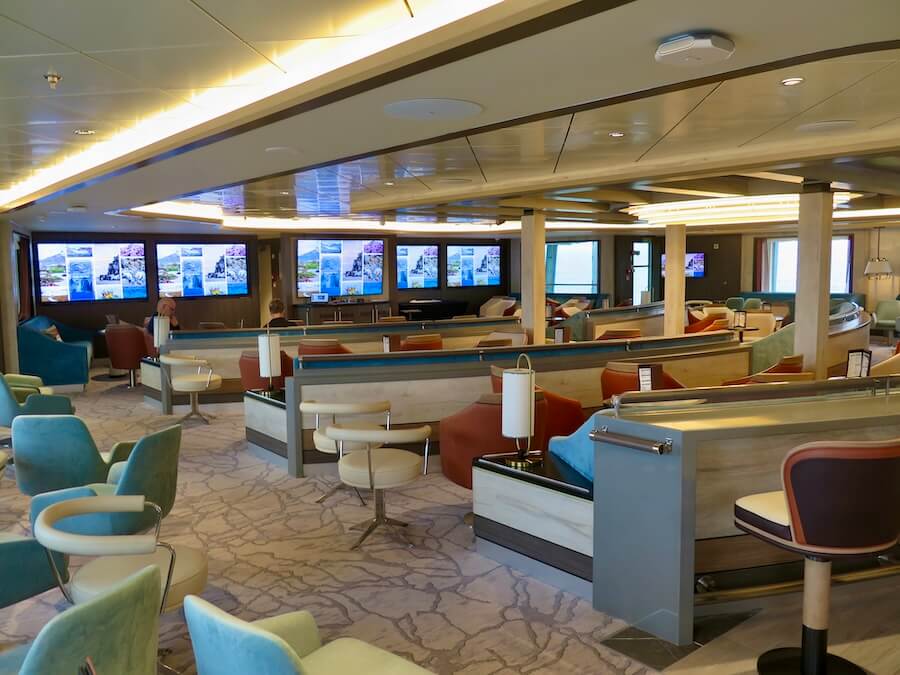
With its big screens, the lounge was our central meeting place for expedition briefings, lecturers and entertainment. * Photo: Anne Kalosh
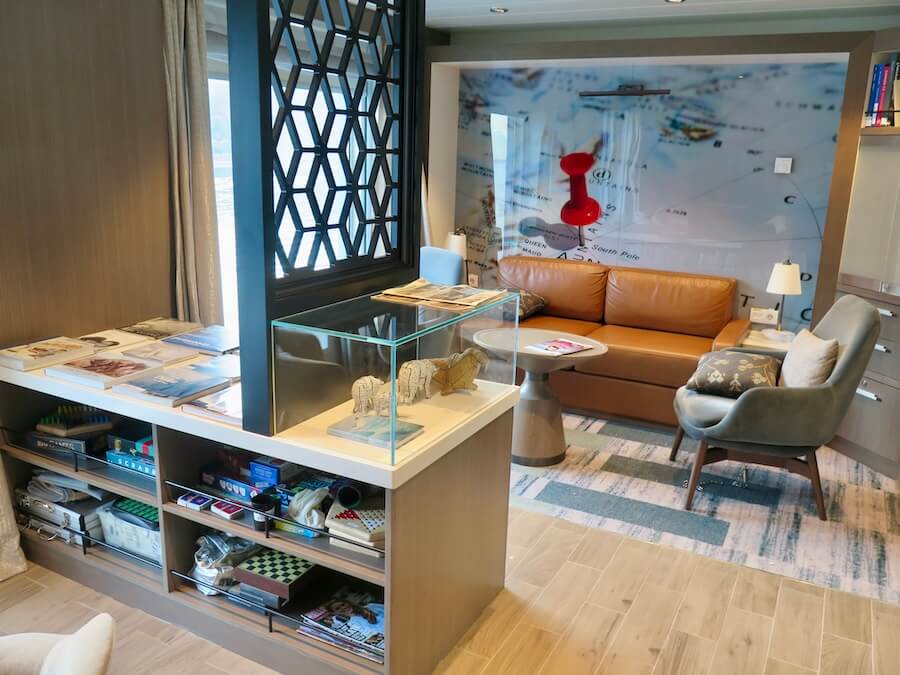
A corner of the library. * Photo: Anne Kalosh
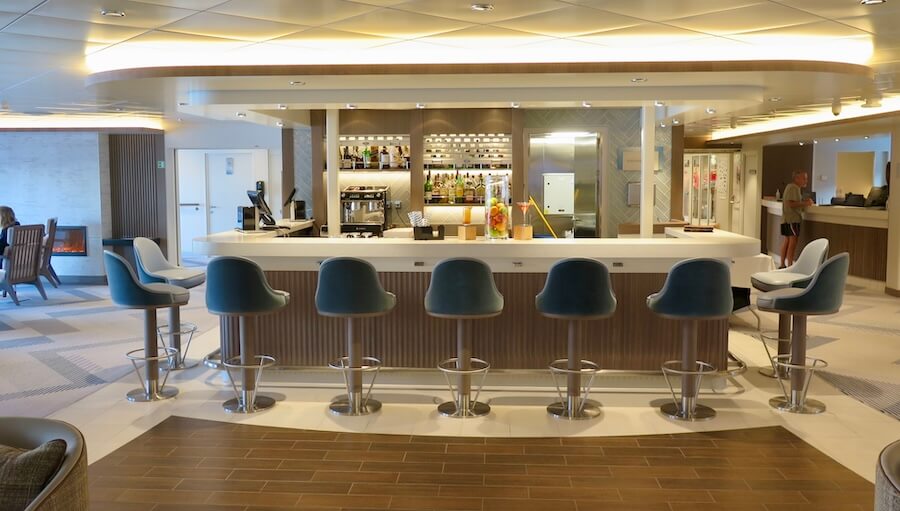
The bar, in an uncharacteristically empty moment. At left, a faux fireplace. At right, the reception desk. * Photo: Anne Kalosh
All inside a rugged Polar Class 6/1A Ice Class vessel.
Ocean Albatros food was tasty and varied, with international specialties (Castilian garlic and bread soup, tom yum soup), salads, beef, pork, lamb, seafood, pasta, “always available” items like New York sirloin, Atlantic salmon and chicken breast, with desserts like tarts, pies, pudding, baked Alaska, ice cream (including plant-based), fresh fruit and cheeses. Every menu had gluten-free, vegetarian and vegan options. Cakes and pastries were set out in the bar for teatime.
Unlike some expedition ships, wine and beer were not included with meals.
In the lounge for an hour-long introductory briefing, Gaby, the American member of the expedition team, gave a reassuringly thorough safety rundown.
After we sailed, that night at dinner — on my own and knowing nobody — I agreed to the smiling Balinese headwaiter Wayan’s offer to seat me at a “nice table.”
My dining companions turned out to be Danish royalty: the most traveled customer of Albatros, with 108 trips to his credit, and a noted opera singer, I learned later, with a couple of his musician friends.
After flying overnight, I ached to hit the sack but at 9:20 p.m. an announcement: “Northern lights, Deck 8!” Everyone scrambled outside. It was a real wow of flickering greens, suddenly appearing in different shapes, then fading. This went on for hours.
Not one of my pictures turned out. Luckily a professional photographer was part of the expedition team and documenting our trip. The next day Werner from South Africa told me the expedition team stayed up most of the night watching the sky and it was the best display he’d ever seen.
An exciting start!
Day 2 — Crossing the Denmark Strait, En Route to Greenland
I ate breakfast as Iceland faded into the distance on a slate gray morning and met Margit, a solo traveler from Denmark.
A call, the first of many, rang out: “Orcas off the port bow!”
Later I was in the library when we were alerted to humpbacks. As always, I grabbed my jacket, binoculars and camera and joined the stairway migration up to Deck 8 (there’s also an elevator). With its X-BOW, Ocean Albatros doesn’t have a conventional bow where passengers typically stand to observe wildlife. I thought I might miss this vantage point, but I didn’t.
The ship has viewing spots aplenty including outdoors forward (directly in front of and above the bridge) and aft.
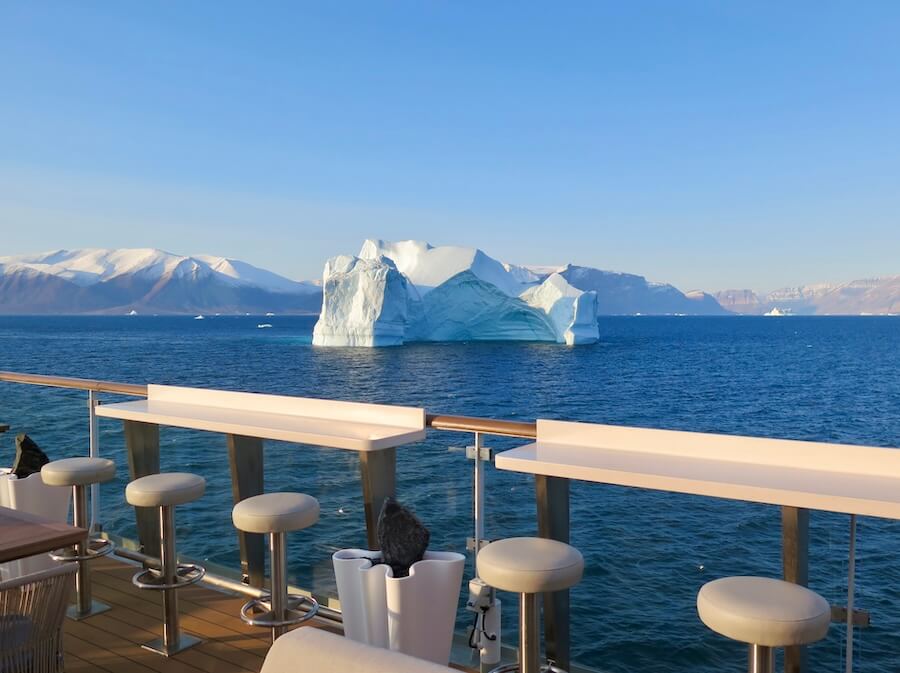
Barstools with a view on the pool deck. * Photo: Anne Kalosh
You can also see a lot on this expedition cruise to Greenland from the big windows of the forward-facing observation lounge, the main lounge (where there’s also an outside but enclosed viewing area) and the dining room. If I got cold, I ducked into the bridge — there’s an open bridge policy — to chat quietly with expedition staff and use the spotting scope.
This first morning out, the lounge was packed for a mandatory briefing with Greenland visitor guidelines from the Association of Arctic Expedition Cruise Operators. Main point: “Leave the Arctic as it is.”
I was especially impressed by the cultural aspects: “Work against prejudiced attitudes. Talk to, and not about, people you meet.” … “Ask before you photograph people. If they hesitate, it’s no.” … “Don’t look in windows or pet Arctic (working) dogs.”
A Zodiac safety briefing was followed by a sobering polar bear briefing by René, the rifle master.
Since we were headed to polar bear country, the expedition team, armed as required, would create a safety perimeter at each landing site (an area of less than a square mile). We had to stay inside that.
René, a Norwegian, lived several years in Svalbard and goes back in season. He’s seen hundreds of polar bears and fired many warning flares but never a shot.
An afternoon lecture enlightened us about the Danish explorer Ejnar Mikkelsen, whose Northeast Greenland expedition (1909-1912) was a feat of survival. In 1924, Mikkelsen established a settlement at Scoresby Sund — now Ittoqqotoormiit, our next day’s stop.
At the captain’s cocktail party, passengers toasted with Champagne. I dined with Margit and a British woman, Kate, also traveling on her own. We instantly hit it off. It turned out Margit had worked at Thule Air Base in Northwest Greenland and Kate had made numerous scientific research trips to Greenland (plus we share an alma mater). What luck! I was with two real Greenland aficionados, fun and interesting fellow travelers. Kate would astound me on a shore landing later, and she became a kind of celebrity on board.
I’ve always met cool people on expedition ships, one reason this is my favorite way to cruise. On such trips, travelers are going with purpose, deeply into the destinations and an esprits de corps develops by sharing adventures in incredible places.
Ocean Albatros has 10 single occupancy staterooms; I also met several solo travelers in larger rooms who’d taken advantage of a no-single-supplement offer Albatros Expeditions occasionally runs.
Plus, in a rare practice, the line will match two solo travelers of the same gender willing to share a Category C (like the room I was in) or a Category F (triple porthole room).
Day 3 — Tiny Ittoqqortoormiit
At 7 a.m. expedition leader Kim gave his universal wake-up call. I opened the curtains to a glassy sea and icebergs! Beautiful day — a balmy 4 degrees C/39 F. Out on deck it was silent and calm.
Known as Scoresbysund until 1996, tiny Ittoqqortoormiit with its colorful houses was our only chance to meet Greenlanders.
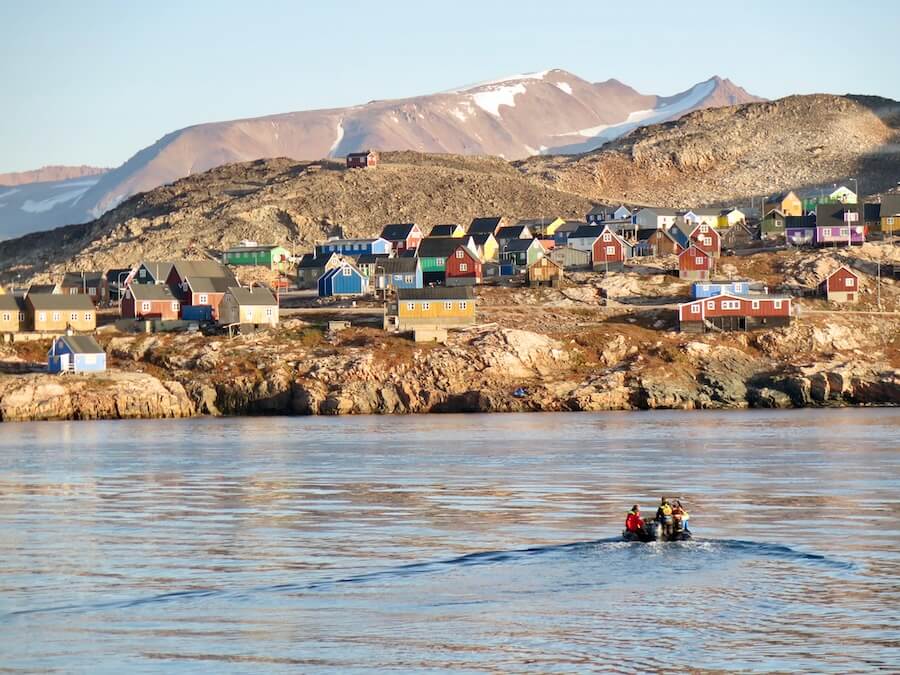
Zodiac transfer between the ship and tiny Ittoqqortoormiit. * Photo: Anne Kalosh
Visit Greenland describes Ittoqqortoormiit’s backyard as an “unspoiled, pristine wilderness where wild animals thrive, millions of seabirds nest, enormous icebergs form a constantly changing sculpture gallery and local hunters still follow the ancient traditions,” adding: “Ittoqqortoormiit is the best place in Greenland to experience the traditional Inuit style of living and where you have the highest chance/risk of meeting a polar bear.”
Ashore I did see a polar bear — skin, hanging on a rack.
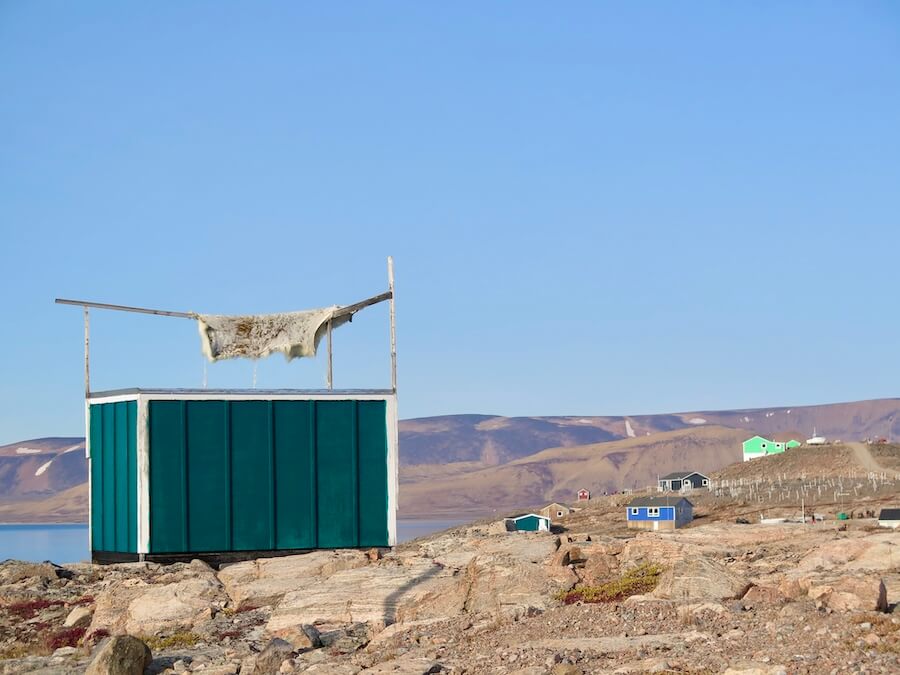
Polar bear skin drying in the sun at Ittoqqortormiit. * Photo: Anne Kalosh
Passengers were assigned to a color-coded group for the duration of the Ocean Albatros cruise. Each group was called to the mudroom at about 20-minute intervals to suit up for the Zodiacs. The order of colors was rotated so we each got a chance to go first. Also, this prevented crowding at the landing sites; in the wilderness areas one group returned to the ship as another arrived.
We each had mudroom lockers with rubber boots loaned by Albatros for the trip. Kate was on my Zodiac, and together we trekked up to the town’s general store. We’d been told not to buy things since all supplies are shipped in and needed by the townspeople.
I was surprised by the donut case (fresh donuts here?) and all the frozen fish. Why sell frozen fish in Greenland, where fishing rules? Kate told me most fishing is on the west coast.
The community had prepared for our visit, offering a feeding where sled dogs devoured chunks of walrus. A weather balloon was launched, and the pretty red church and a small museum were opened, where I lingered over the black and white photos of people past. The tourist office displayed traditional clothing and sold sealskin items.
I walked uphill to the Ejnar Mikkelsen monument and a panoramic view. A smiling man on his porch greeted me on the way up and waved me over on the way down. He spoke good English and invited me to sit with him. Lots of expedition ships visit, he said, and most locals were out hunting so the town was quiet. (Also, there’d been a big party the night before for his granddaughter’s 18th birthday.) More family members came out, and the man’s wife showed me a handsome ulu (knife) she’d crafted.
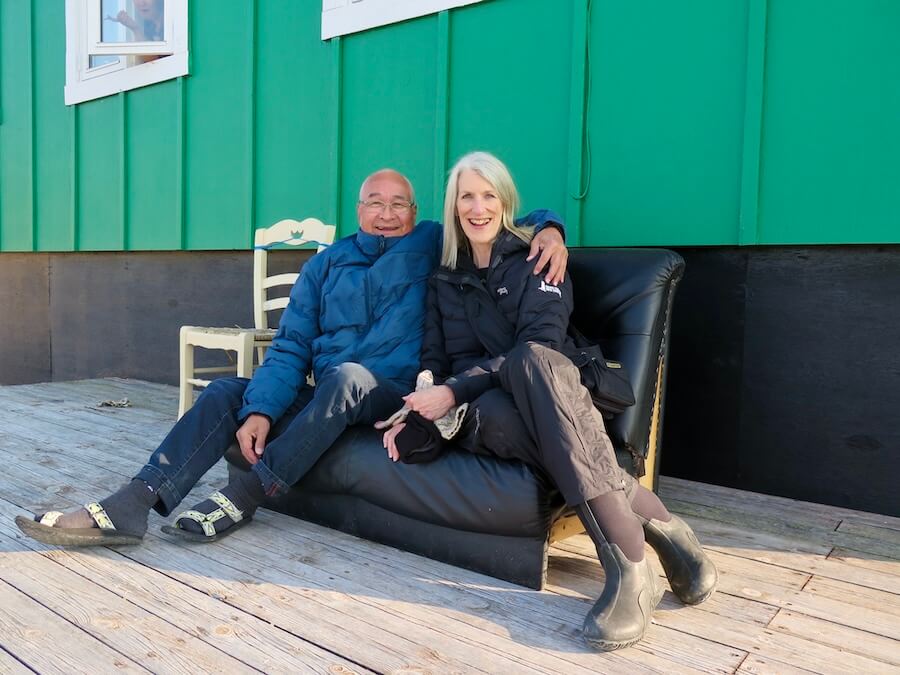
Meeting a new friend in Ittoqqortoormiit. * Photo: Anne Kalosh
After this delightful encounter that made me feel very welcome as a visitor, I trudged to the cemetery where graves were covered in plastic flowers, bottles and lanterns. Grimly, eight graves, dug during the summer when the ground wasn’t frozen, lay open, waiting.
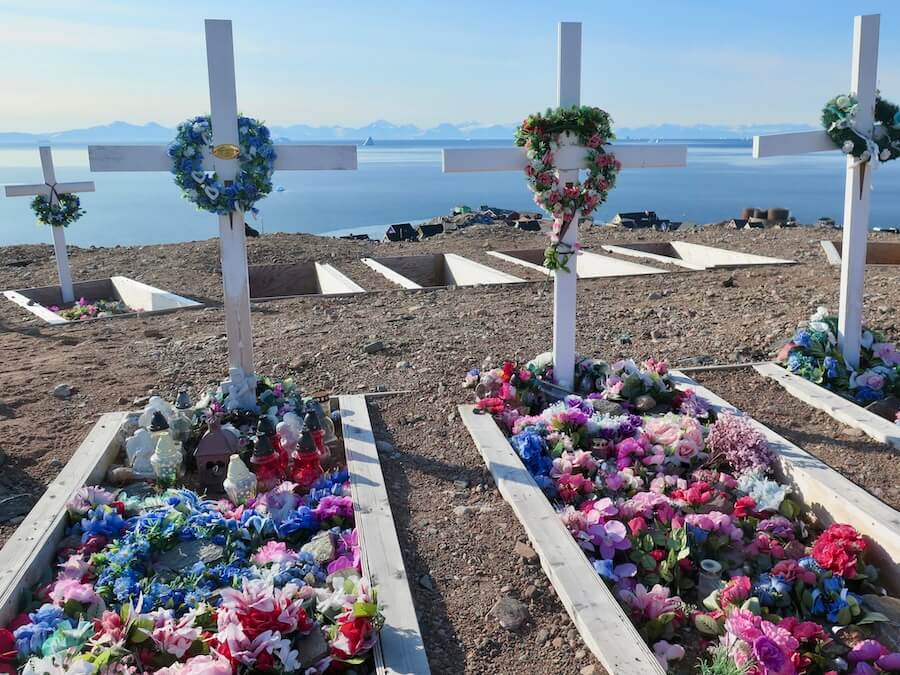
The graveyard at Ittoqqortoormiit — a sobering sight with graves dug when the ground isn’t frozen — and waiting. * Photo: Anne Kalosh
I caught the last Zodiac back to the ship at 1. The afternoon’s geology lecture informed us that long ago Greenland was tropical and previewed the types of rocks we’d be seeing. Another lecture delved into the northern lights.
Someone thought they spotted a narwhal and the ship turned around. I’ve always yearned to see one of those elusive creatures with its long tusk. Alas, a false alarm.
At the expedition briefing we learned about Ella Ø (Island), where we’d go the next day. Kayak master Julien, a Frenchman and a hunter living in Greenland with a Greenlandic wife, gave a somewhat daunting kayak briefing. After hearing it would be three hours, cold and in two-person kayaks, I decided not to go. I’m not a seasoned kayaker and I didn’t have a partner.
The kayaking excursion was discussed at dinner. It cost $250, leading a man to quip: “Do you get to keep the kayak?”
Day 4 — Ella Island, Tsunami, Vega Sund and Kayaking
I awoke very early and went outside to see steep, snow-dusted cliffs. Expedition leader Kim said to prepare for an amazing sight as daylight broke.
Suddenly there it was off the starboard side: Bastion, a 1.4 kilometer/4,593 feet high chunk of sedimentary rock tinted red by iron. To port, glaciers. Beyond, soft pinkish light and snow-dusted mountains with rounded tops.
I asked rifle master René if it reminded him of home (Norway), and he said this is maybe more beautiful. It was bitterly cold, yet the opera singer padded around deck in slip-ons with no socks.
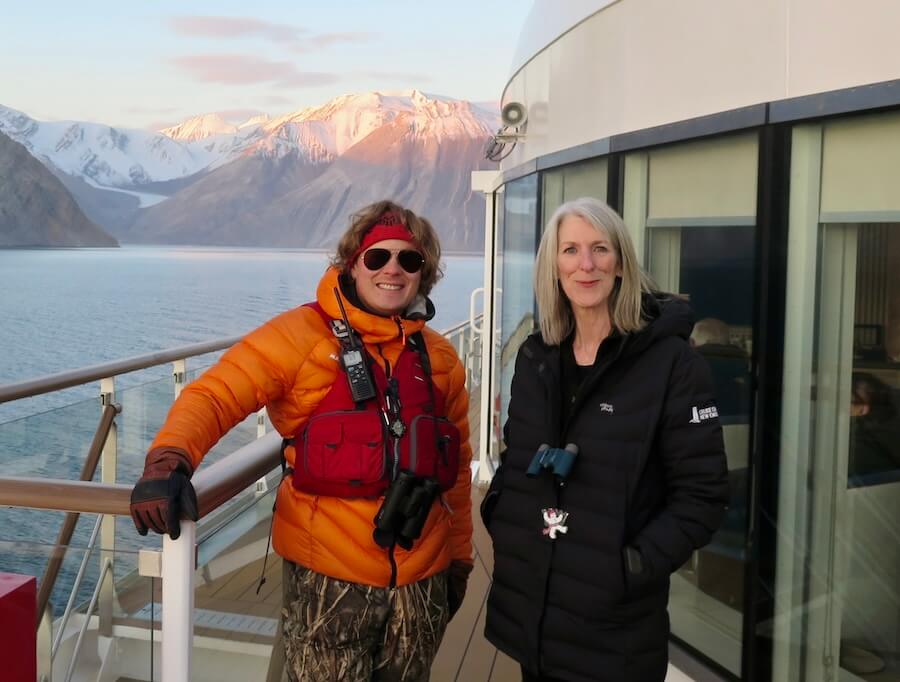
With expedition team member, René, the rifle master, on deck. Look at that backdrop! * Photo: Anne Kalosh
Via Zodiac, we arrived at Ella Island, a supply post for the Sirius Patrol. What a memorable place, nestled in a deep fjord, at water’s edge, against a backdrop of mountains tinted gold in the sun.
Thomas the Zodiac driver pointed to toppled containers and a boat on a trailer and equipment in the water — perhaps caused by a tsunami triggered by a glacier calving, an iceberg tipping or a landslide. The ground was still wet.
Inside the small, rustic cabin that shelters the Sirius Patrol, Kate said: “I think this was my room.” What?! She amazed me. Turns out Ella Ø was one of the places Kate stayed during her many scientific expeditions. She explained how, in these shelters, the matches are always left out on the stove because you’d arrive with cold hands, fingers too stiff to pluck a match from the box.
A red hut outside labeled “Niagara” contained the shower.
VIDEO: Below, Kate shares some of her memories of scientific expeditions that included long stays at Ella Ø.
At 9:45 a.m. it was already time for my group to go back. The muscular Thomas used a hook to retrieve a device in the water. The expedition team had been rescuing as much as they could.
This was not the end to the tsunami story. Later we’d learn our visit was news-making. From Wikipedia:
On 16 September 2023, an unwitnessed tsunami of undetermined origin struck the northern part of Ella Island, penetrating 50 metres (55 yd) inland and devastating the Sirius Dog Sled Patrol station there, washing much of it into the sea. The station was closed for the winter, and no one was present when the wave hit. The cruise ship Ocean Albatros arrived on the scene on 17 September and contacted the Joint Arctic Command with the first report of the damage. On 19 September, personnel from the Sirius Dog Sled Patrol and the Royal Danish Navy patrol vessel HDMS Knud Rasmussen began clean-up and salvage work at the site, which they completed by 21 September despite a 20 September warning by officials to ships in the area to avoid putting crew members or passengers ashore because of a risk of additional tsunamis.
And more here, from the Polar Journal and here from the Santa Monica Observer.
VIDEO: Below, our landing at Ella Island, where we saw the fresh effects of the recent tsunami.
Back aboard, I took in the vista from the observation lounge. Kate brought her diary from a 1994 expedition when she stayed at Ella Ø, in a balmy August, getting chased by a musk ox (she climbed on a rock), showering in Niagara, washing her hair in a pond, hiking to a waterfall, documenting Inuit mosaics and relishing a meal of fresh salmon after a couple weeks of packaged provisions. I read it, rapt.
By now it was super-sunny on the pool deck. A couple climbed into a hot tub.
As Ocean Albatros continued on to Vega Sund, assistant expedition leader Anette told us about her work in Greenland launching weather balloons, like that we’d seen at Ittoqqotoormiit. Then Kate was called up for an extemporaneous recap of her expeditions, research and polar bear encounters. I felt proud to know her.
Expedition team member Lisa talked me into kayaking by saying she’d find me a partner. Suddenly I was in the mudroom, tugging on a dry suit — with lots of help — and special boots over thick socks. I wore leggings, fleece pants and waterproof pants under the suit. I felt like I was going on a space mission and about as anxious.
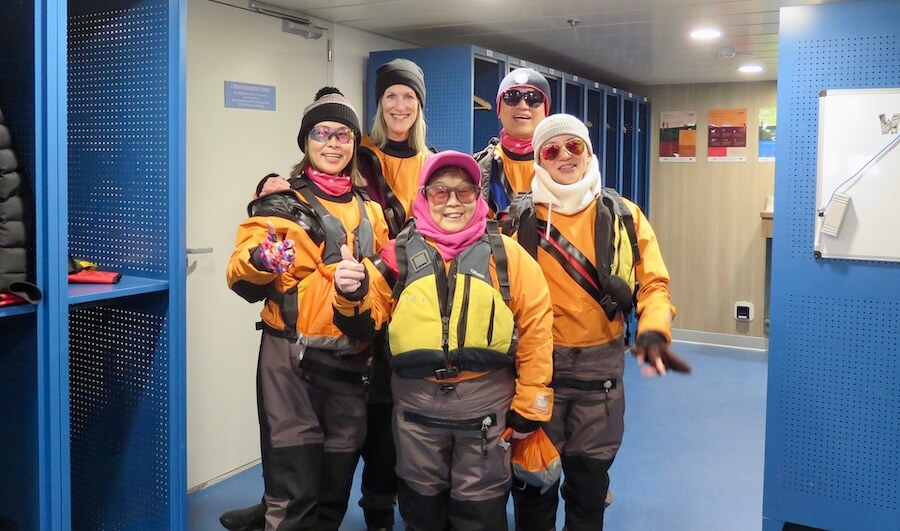
In the mudroom, suited up for kayaking. * Photo: Anne Kalosh
But then I met my kayaking partner, the kind and friendly Tina, a Greenlander who lives in Denmark. Other kayakers included a Chinese honeymoon couple, a Danish mother and daughter, and several singles. Everyone got paired.
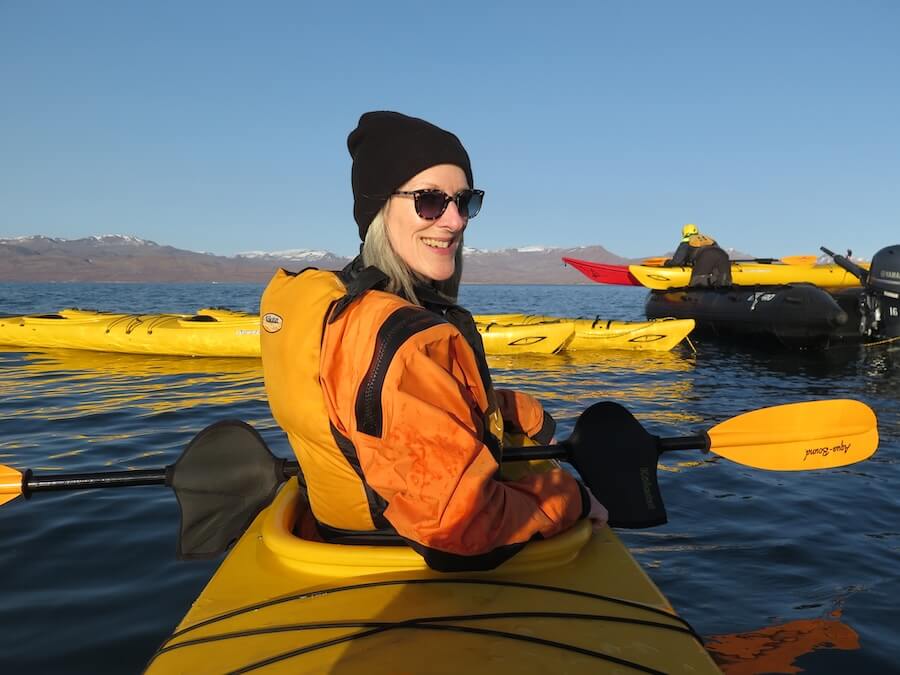
Anne getting ready to kayak in Greenland. * Photo: Tina Lauritsen
We paddled far, skirting the coast. Kayak master Julien, so stern in his briefing, was now smiling and laughing. A hunter, he was in his element, and when someone spotted a baby ringed seal, Julien motioned to keep our heads low and be quiet. We got close, silently observing the seal. Tina whispered, earnestly, that she wished we could eat it.
Seal tastes “Mmmmm, like nothing else,” she told me.
I later asked Tina her thoughts about cruises to Greenland, which are booming. She thinks small ships like Ocean Albatros are ideal, but she doesn’t like the big ones because they overwhelm the towns in West Greenland.
She added there was some negative sentiment after expedition ship Ocean Explorer’s grounding. She’d also like to see like to see Greenlandic food served on board, perhaps by companies engaging a hunter, and more job opportunities for Greenlanders in travel, especially the chance to work abroad to gain experience.
Subsequently I asked the firm that provides ship management (including catering) to Albatros Expeditions about this. I was told some fresh fish and seafood are purchased in Greenland, and musk ox is available on some ships.
An Albatros executive said “There are animals we cannot serve because guests will not appreciate it. Whale is eaten in Greenland. We don’t judge it … But we choose not to serve whale to our guests, or seal.” Both companies said they’re open to hiring Greenlanders (and Albatros does so shoreside).
Back aboard after kayaking, I dashed upstairs, wine bottle in hand, to the hot rocks restaurant for a pre-reserved meal with Kate and Margit. The waiter brought raw meat for diners to cook on our individual hot rocks plates, the scent of sizzling steak filling the room. A vegetarian, I had veggies.
As we swapped stories, I learned one Zodiac group spotted a polar bear poking its head above a boulder.
Day 5 — Teufelsschloss, Polar Plunge, Musk Ox Fjord
Kim woke us 6:30 a.m. as we headed through Kaiser Franz Joseph Fjord toward Teufelsschloss with its bright bands of sedimentary rock. It was 3 degrees C/37 F. People swarmed the forward decks, shooting with massive telephoto lenses. So I went aft.
The snow and dawn colors were beautiful with sun glittering on the rocks and the bergy bits (pieces of floating glacial ice).
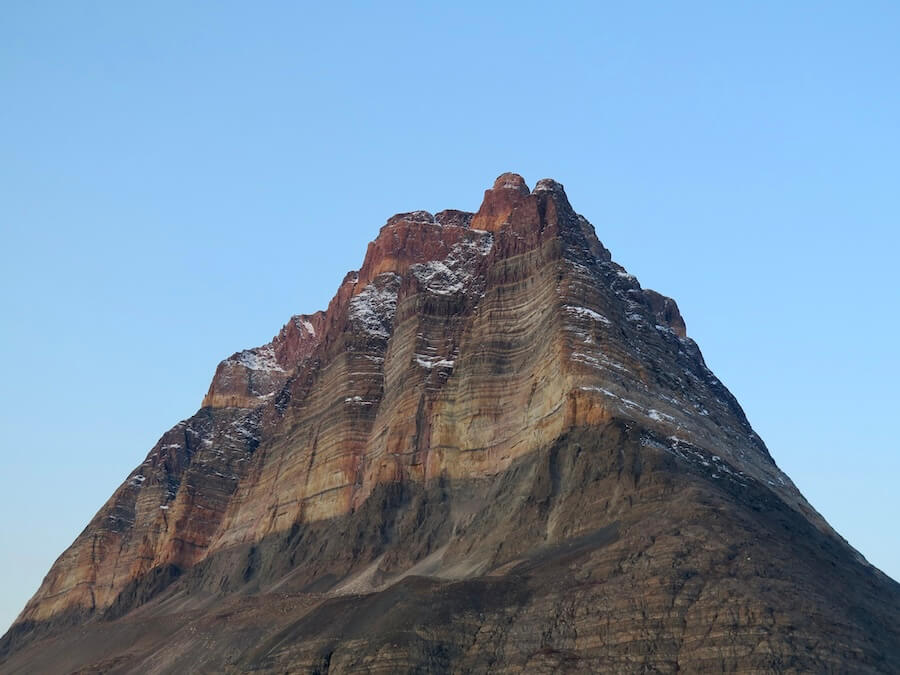
Day 5 – Teufelsschloss. * Photo: Anne Kalosh
Today the colors and variety were so rich. Snow and rounded hills here. Craggy rocks there. Glaciers there. Julien pointed out a musk ox ashore. It was a dot; how could he see it? A hunter’s eyes. Arctic skuas were on the wing.
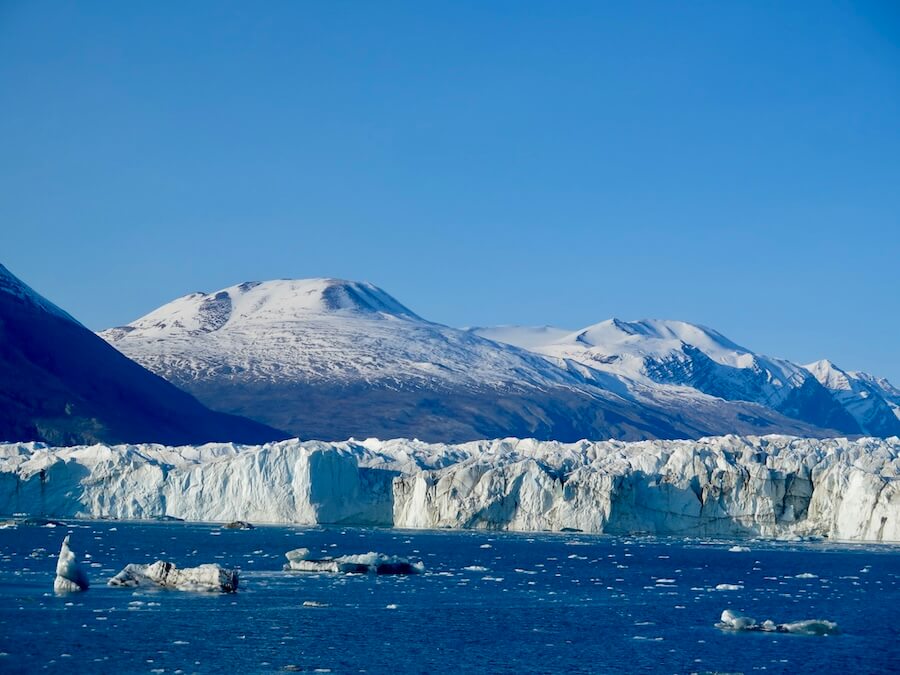
One of Northeast Greenland’s expansive glaciers. * Photo: Anne Kalosh
In a calm bay beside a glacier were three huts. Kim said supplies and food were stored there, adding: “In summer you can catch salmon with your hand. And Arctic char, delicious.”
VIDEO: From the X-Bow to the Mountains, below.
I gazed down at the X-BOW and watched new ice forming in the undulating water. We dropped anchor.
For days passengers had chattered about the polar plunge. On some expeditions, it’s a tradition. My stance: Go ahead, but I already know what cold water is like.
So I didn’t take the plunge but, from my cabin balcony, I had a bird’s eye view of the Zodiac below where, one by one and tethered to a line, people jumped in and even more quickly, out. There were some shrieks. One woman executed a graceful swan dive.
Lunch was a barbecue on the pool deck with a roast suckling pig. Immediately Wayan met me: “Miss Anne, Mr. Oliver prepared a veggie burger for you.” So thoughtful! People piled plates high then lined up for apple pie with ice cream.
It was too cold for me. Indoors, I asked expedition team member Sandra to show me on the map where we’d been:
VIDEO: Below, an Ocean Albatros team member charts our journey through the maze coastal waters of East Greenland.
That afternoon, we sailed a long stint past the face of a glacier that Kim said was 40 to 50 meters/131 to 164 feet high. It was dotted with ice caves and darkened in places by moraine. Lots of ice, some of it black (transparent) ice, floated all around. A seal bobbed on a piece.
VIDEO: Glaciers that go on and on, below.
I watched from the warmth of my cabin, often ducking out to the balcony.
And jotting notes: “Really wow! scenery. After the glacier, a brown mountain topped by red square rock, with a perfect reflection in the glassy water below, flecked by bits of ice.
“It’s like the red rocks of Sedona piled on a mountain of desert sand atop a reflecting pool.
“Now there’s a towering brown blob of a mountain with red around the collar and snow frosting.
“3:40 p.m. The water is like glass with near perfect reflections of the brownish-reddish hills, reddish lichen on the lower slopes, snow dusting on top.”
VIDEO: Below, Anne captures the splendidly calm day in East Greenland with mirror-like reflections.
We were in Musk Ox Fjord and making a surprise landing. What a gorgeous, peaceful spot, with a cozy hut: Hoelsbru, with low doorways, a stove, stores and half bottles of Bacardi Limón and Jaegermeister.
Kim had stayed here. Kate, too.
VIDEO: Ocean Alabatros Expedition Leader Kim at Hoelsbru.
Chugging uphill in back, I was enthralled by the low reddish plants, the orange lichen on the stones, the idyllic views and the sound of gurgling streams.
That night I enjoyed a rollicking dinner with my kayaking partner Tina, and Thomas, the boat master, yet another expedition team member with a vast Greenland resumé. When he lived there, he owned 23 sled dogs.
In the lounge a classic Greenland movie aired but after such a full, rich day, I needed my bed.
Day 6 — Myggbukta
I didn’t like the 6 a.m. wake-up call. And the self-serve coffee machine in the lounge — the single most vital piece of equipment apart from the ship’s engine for keeping us going — was temporarily out of order, a crisis!
The wonderful Wayan came to my rescue with a big barista-prepared cappuccino.
At 7:30 a.m. Anette briefed us on Myggbukta, a Norwegian hunting hut. In response to the presence of Norwegian hunters, Denmark created the East Greenland Company in 1919. When Norway claimed a large patch of East Greenland in 1922, “This is war,” Anette, a Dane, growled with mock menace. Denmark went to the Hague and reached far back into history including the 1600s when a French king said Greenland was Denmark’s. And in 1917 when Denmark sold its Caribbean islands to the United States, the U.S. agreed not to oppose Denmark’s claims to the northern territory.
Low, rounded brown mountains were close by with a rifleman silhouetted against snowcapped mountains in the distance. Polar foxes were sighted on shore. Our Zodiacs landed on a pebbly beach.
I wandered with my head down, looking at the lichen, artworks it pained me to be crushing beneath my boots. I nearly walked into Polish expedition team member Syzmon, guarding the beach perimeter.
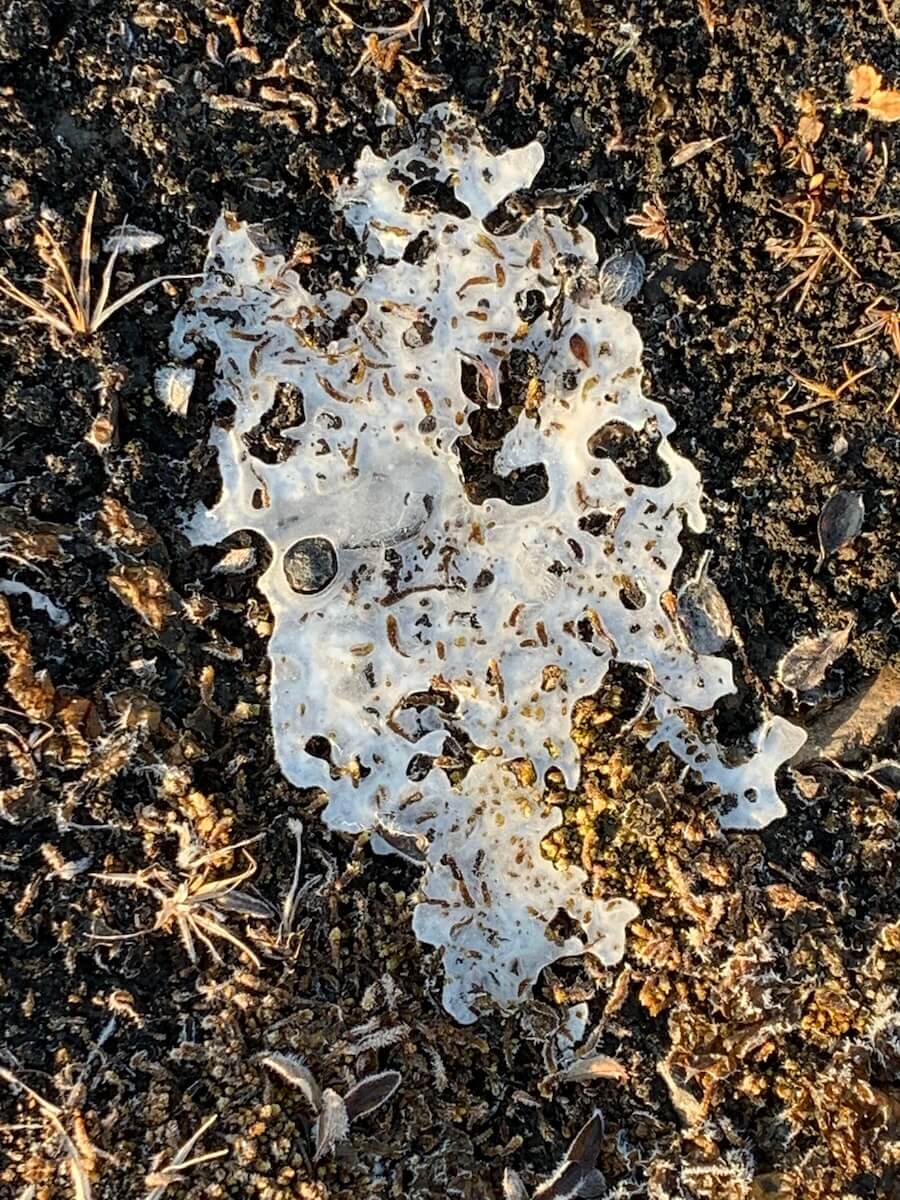
Ice and lichen. * Photo: Anne Kalosh
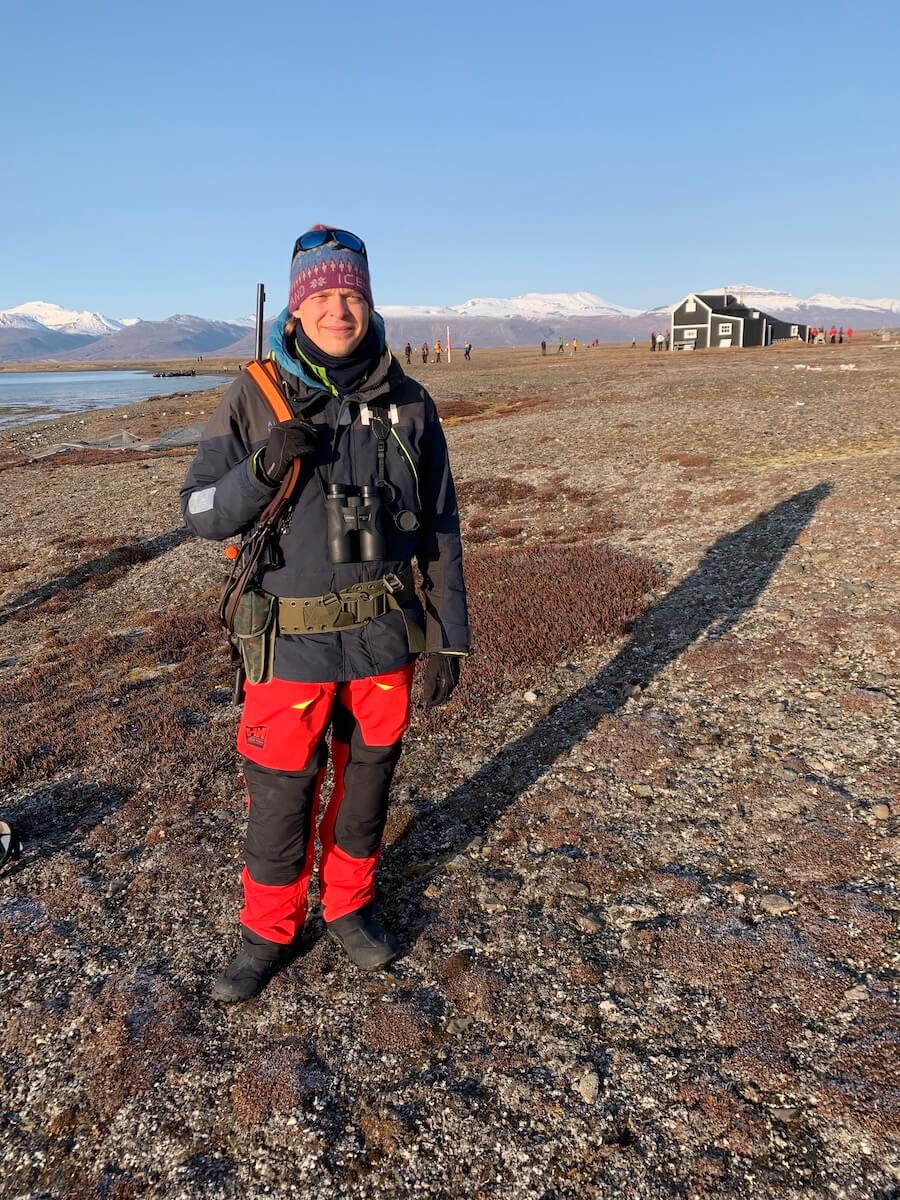
Day 6 – Ocean Albatros expedition team member Szymon on polar bear watch at Myggbukta. * Photo: Anne Kalosh
Afternoon on board consisted of a bevy of lectures. Kim captivated us with his adventures on the Sirius Patrol. Sandra gave a witty talk on lichens (a feat). Other expedition team members’ topics ranged from geology to why icebergs are blue, and the difference between cultural history and trash.
As usual, questions from the ship’s question box were answered:
- How many people did the polar plunge? 32.
- How many ships called in Ittoqqortoormiit this short season? 60.
- The highest latitude reached on the trip? 73° 47′ 58.6″ N.
How many cups of coffee produced by the self-serve machines? Incalculable.
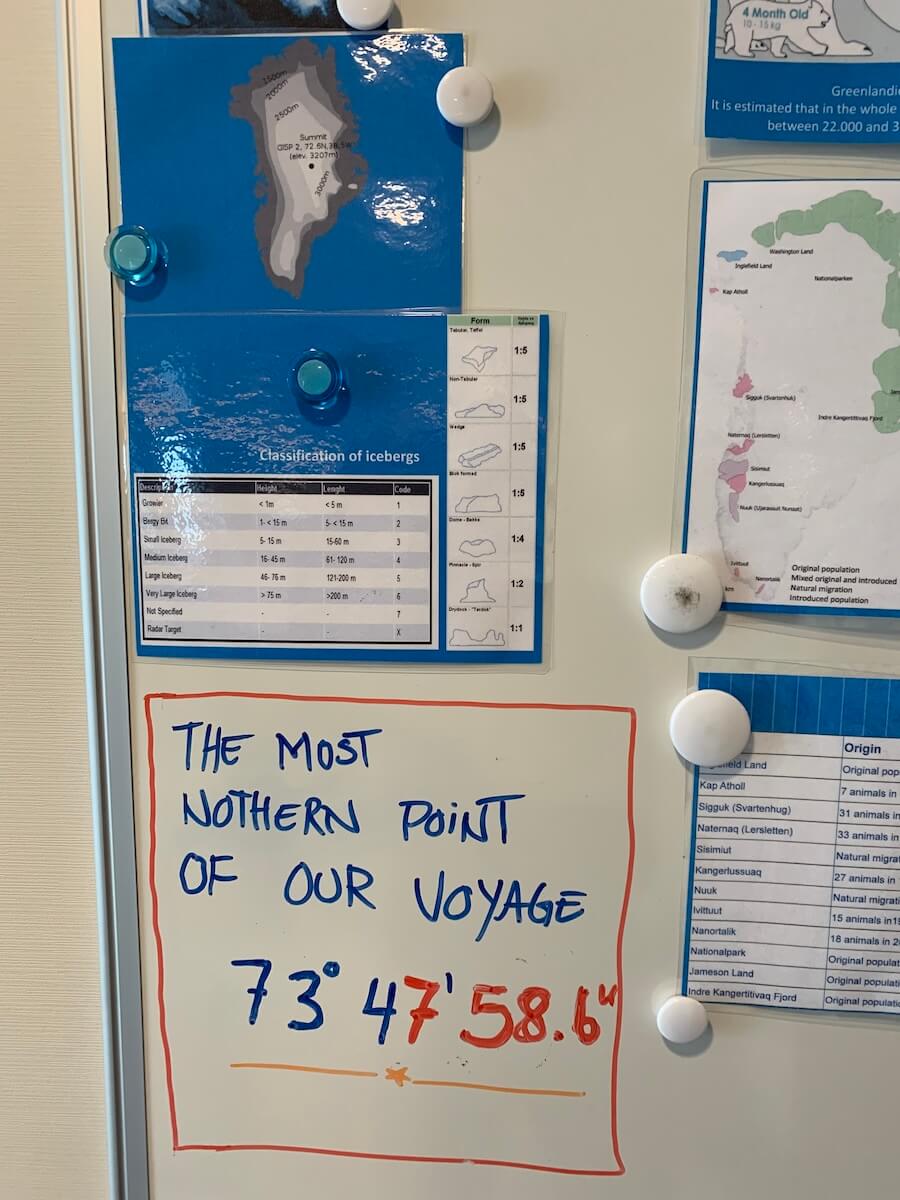
Most northern point of our voyage. * Photo: Anne Kalosh
After dinner, the Ocean Albatros bar was hopping, as usual. Lots of passengers were regulars in this cozy central spot with a faux fireplace on the side but I never managed to stay up for the nightlife.
Day 7 — Carlsberg Fjord
I awoke at 6:45am before our “late” call by Kim as we didn’t have a scheduled landing. Our adventure was coming to an end. It was 1 degree C/34 F in Carlsberg Fjord. I saw glaciers from my cabin. A bonus Zodiac tour was announced.
We were in a huge bowl, ringed by glaciers. Our Zodiac driver steered toward a small berg as light broke over the brown mountains on a gloomy day. We watched a glacier calve then steered to another glacier we were told is one kilometer/.62 miles long. A berg with diagonal lines was eye-catching. As we headed toward still another glacier, two seals popped out of the water.
I asked our driver about electric Zodiacs and was told yes, Albatros Expeditions wants them but there are challenges with the batteries in polar regions.
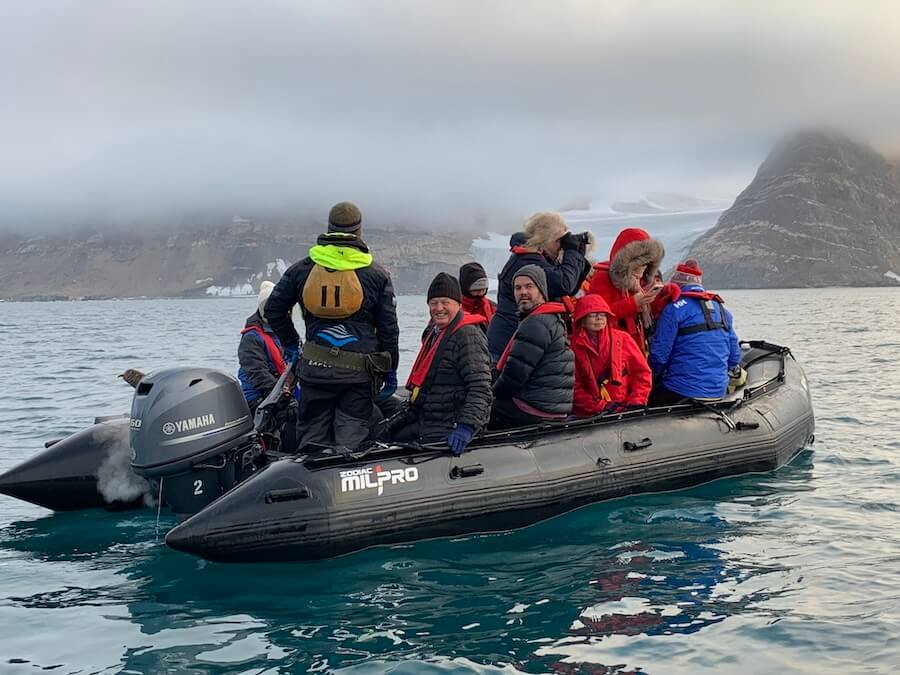
Day 7 – Zodiac on a gloomy day in Carlsberg Fjord. * Photo: Anne Kalosh
Back aboard, patches of ice formed on the decks. On the bridge, the staff captain told me we were anchored at a depth of 80 meters/262 feet.
At lunch I talked with an American disappointed about not seeing many animals or being able to take long hikes. An expedition team member said people shouldn’t expect to see lots of wildlife because they’re spread across such a vast expanse.
If it’s polar bears you want, go to much smaller Svalbard.
But it’s precisely because there are polar bears in Greenland that we had the enclosed safety perimeters, which limited the ability to take the kind of long hikes the other American had expected.
I wasn’t disappointed about wildlife. I was wowed by the scenery. Though as an avid hiker, I, too, would have liked to roam further afield.
With the cruise almost over, the Ocean Albatros boutique was luring in shoppers with items like sealskin gloves, books on polar bears, lusciously soft sealskin totes dyed red and blue ($305) and a snazzy yellow sealskin clutch ($295). (Note, in Greenland, seal is hunted for food and the rest of the animal is used for gloves, coats etc. It’s illegal to import sealskin to the United States.)
Outside, it was snowing, the perfect backdrop for Szymon’s lecture on polar bears.
The ship was rolling a bit; we’d been told at a disembarkation briefing that we might encounter some “seas” en route back to Iceland.
That evening was the captain’s farewell party. Ocean Albatros is a casual ship, no fancy attire or neckties required. I changed into a blue cashmere V-neck and a silk scarf, and an Aussie man teased me: “You’ve done yourself up!”
Our recap session featured Werner’s photos of the polar plunge, funny questions that have been asked on expeditions (“Does the water go all the way around the island?”) that got us all laughing and an expedition team member’s clever presentation, “A Year in Greenland,” covering the seasons, customs, holidays and newspaper headlines where she lives.
Kate, who’d been given a bottle of Champagne as thanks for her impromptu presentation, shared it at dinner. Each place setting also had a bottle of Carlsberg beer, a treat to toast our day in Carlsberg Fjord.
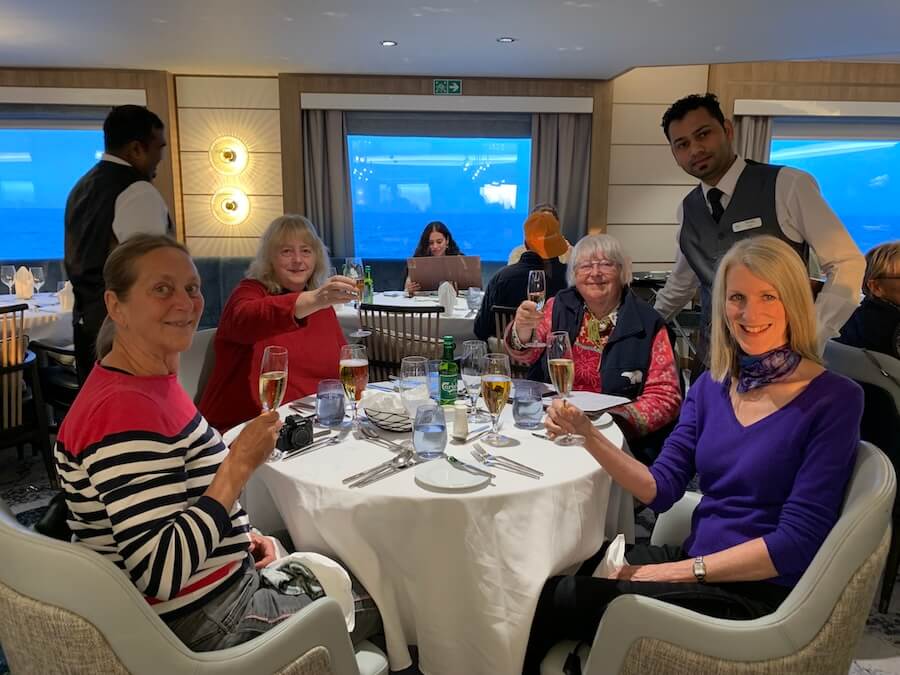
Day 7 – Farewell dinner toast, treated to Champagne by Kate and beer by Carlsberg after our visit to Carlsbergfjord. * Photo: Wayan
Day 8 — At Sea, Crossing to Reykjavik
No wakeup call on our day at sea before arriving back in Reykjavik. Of course, my eyes popped open at 6.
A morning lecture was about the Norwegian polar explorer Roald Amundsen.
Passengers seemed to particularly enjoy the special spread at lunch: big battered pieces of cod for fish and chips and a fancy sushi selection. Ice cream, rice pudding and lemon pie for dessert.
The afternoon lecture on Greenland’s ice future, climate change and global warming was dire. But climate change is also a reason why some people want to see Greenland now. And when you learn about the retreat of the ice shelf, you feel the urgency to do something.
The seas were calmer. It never got rough. We passed land on the port side: Iceland. The clouds were low with patches of pale blue sky peeping through. (We were told crossing the Denmark Strait could be rough, which was one day over and one day back; we had one day of some rolling but not bad. I think the unusual thing about our trip was that it was mostly sunshine, fair, sparkling, not cloudy or windy. Only Carlsberg Fjord was overcast.)
Bright and early the next morning, we were back in Reykjavik.
Greenland was extraordinary, one of my best trips. Like coming back from Antarctica, I felt a halo from having been somewhere really special on this Earth — immense, wildly beautiful, fierce and mysterious yet fragile at the same time.
I could well understand why Kate and the expedition team kept being drawn back to it.
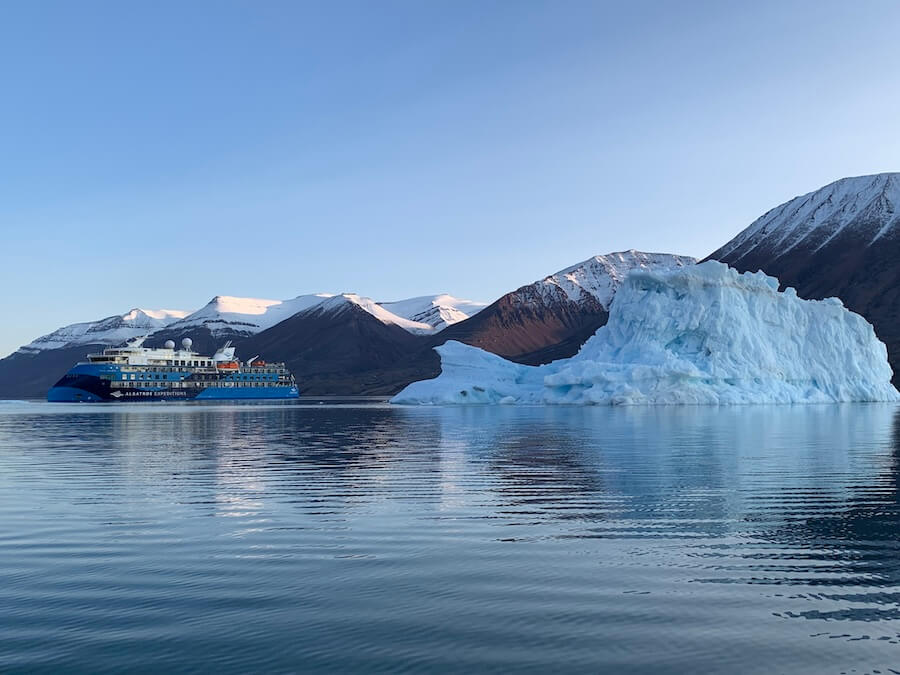
Ocean Albatros set amidst icebergs and snow-dusted mountains. * Photo: Anne Kalosh
Interested in this Expedition Cruise to East Greenland on Ocean Albatros?
If you’re considering one of the best luxury small boat cruises to Greenland, here are details and pricing about Ocean Albatros cruises in East Greenland for 2025.
Albatros Expeditions varies its Greenland itineraries from year to year.
In 2025, there’s a new 11-night Complete East Greenland trip departing Sept. 17 that visits two settlements in addition to Ittoqqotoormiit and the Blosseville Coast south of Ittoqqotoormiit, described as “Possibly the most dramatic coast outside of Antarctica … guarded by Greenland’s highest mountains and steepest fjords.”
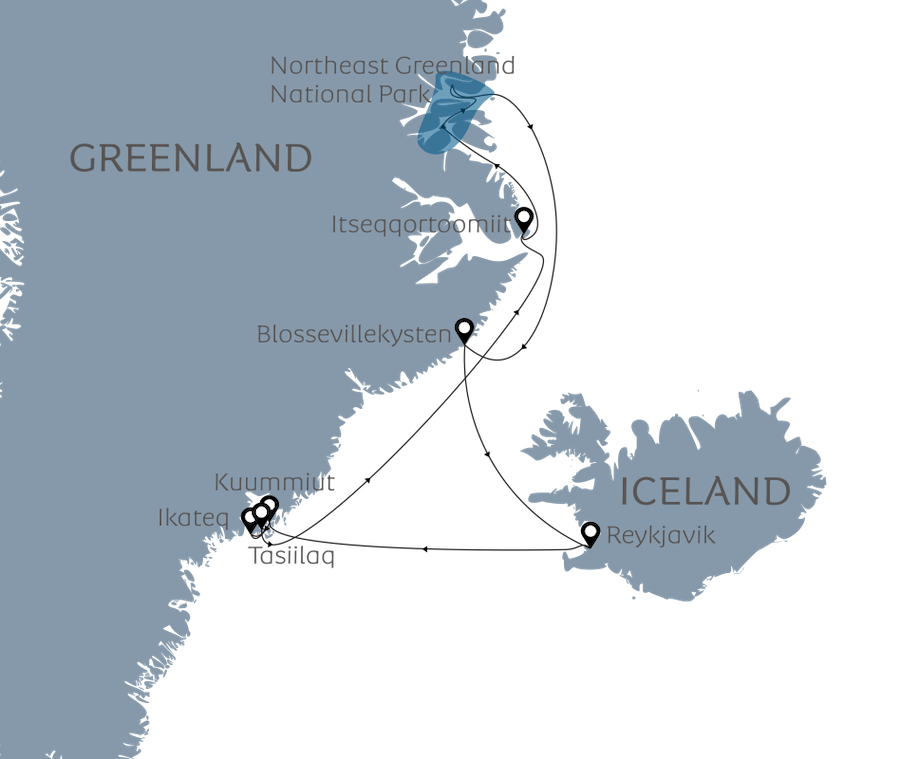
The Complete East Greenland Cruise. * Photo: Albatros Expeditions
It’s currently priced at $11,095 per person, double occupancy in a Category C balcony cabin (the kind I was in).
Fares include:
- Excursions
- Port taxes
- Landing fees
Fares do not include:
- Alcoholic drinks
- Wi-Fi
- Gratuities (the recommended amount is $16 per day, pooled for all the crew)
- Note, medical evacuation insurance coverage is required
Keep an eye on the company’s last minute offers and special promotions. And note, there are also Ocean Albatros Antarctica cruise expeditions to consider; here’s more info.
![]()
Don’t miss a post about small-ship cruising, subscribe to QuirkyCruise.com for monthly updates & special offers!
© This article is protected by copyright, no part may be reproduced by any process without written permission from the author. All Rights Reserved. QuirkyCruise.com.

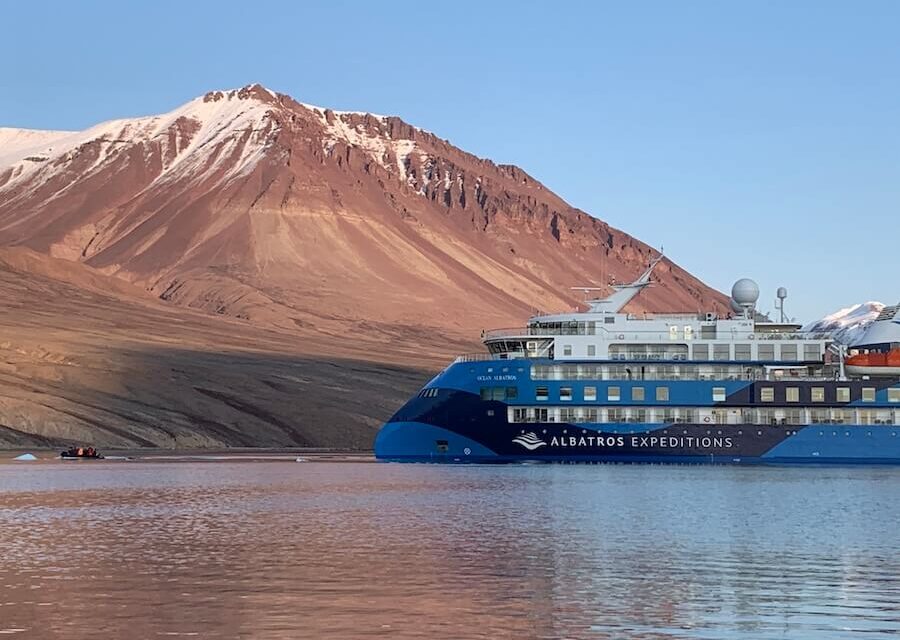
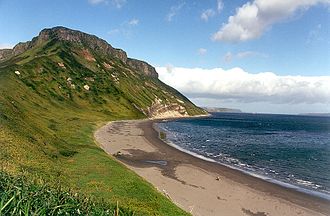
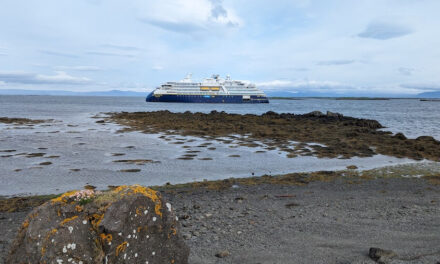
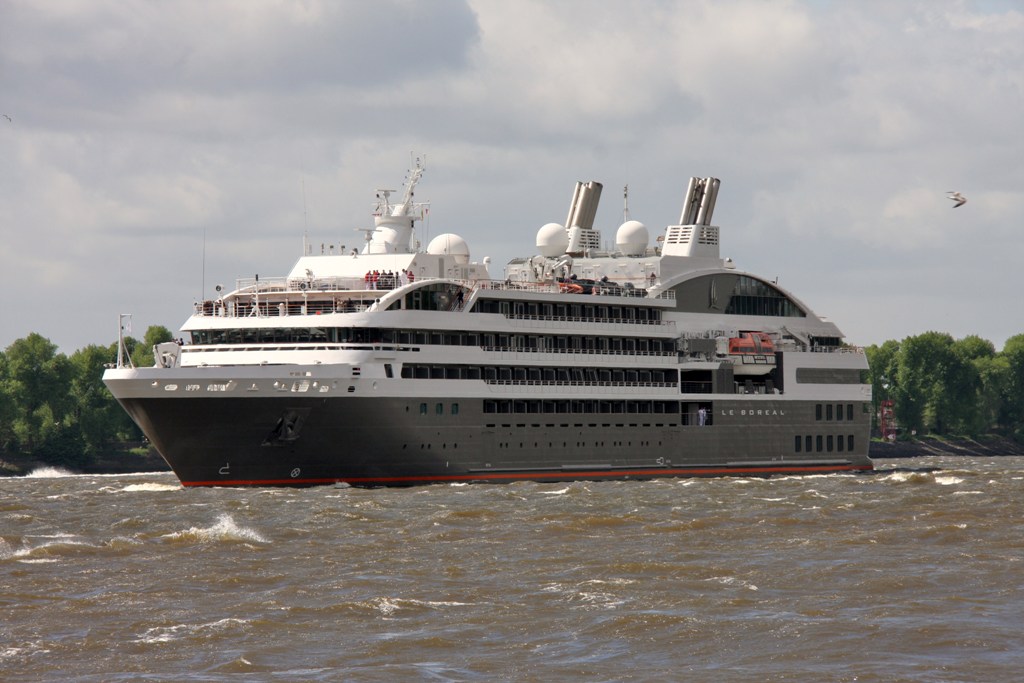
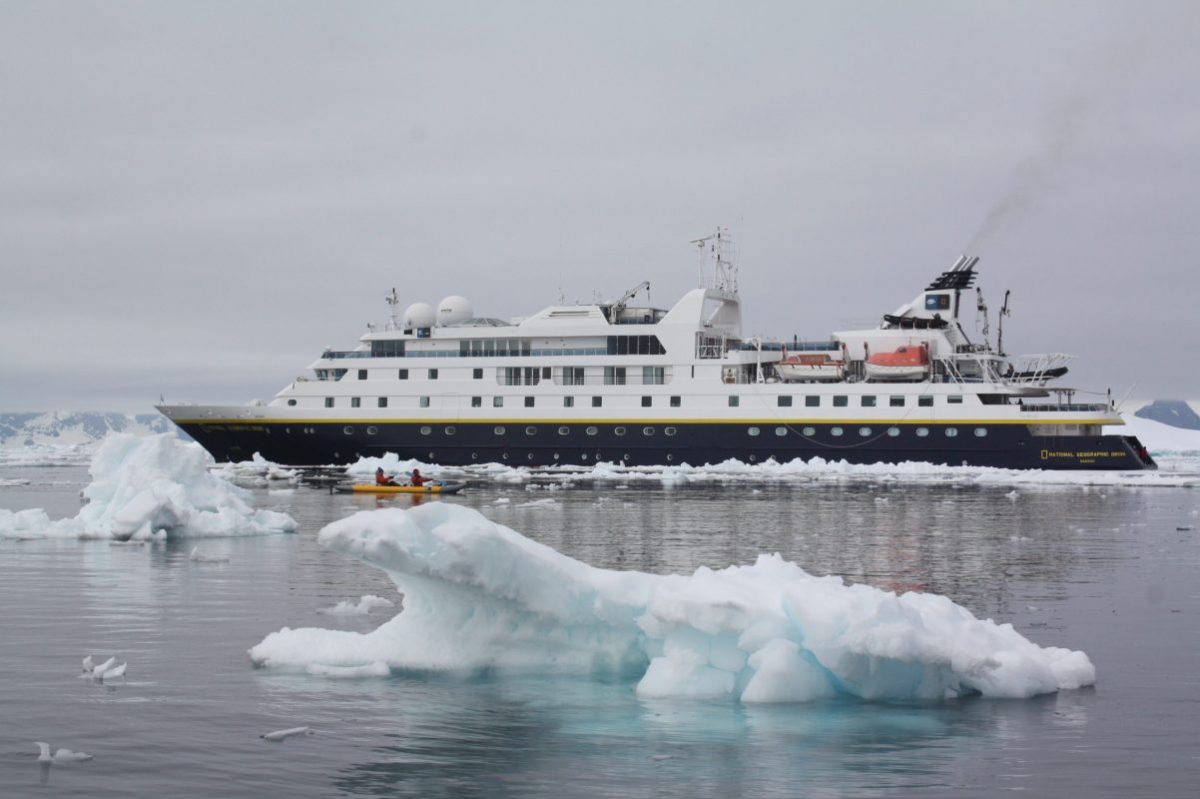
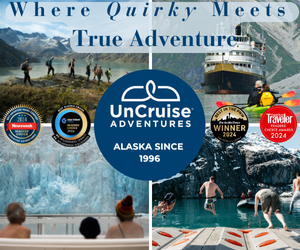
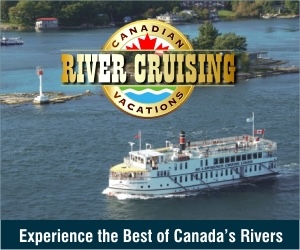

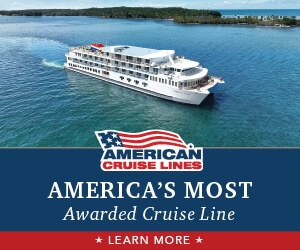

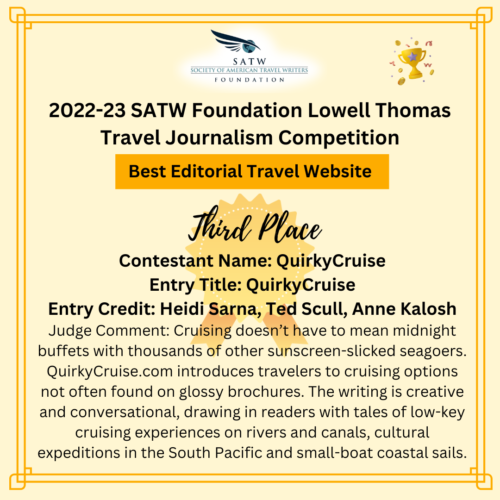


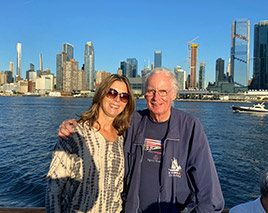 HEIDI SARNA
HEIDI SARNA
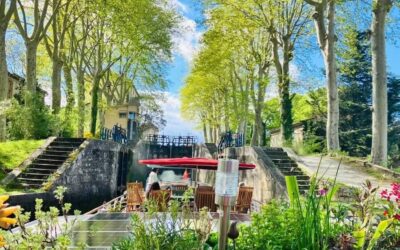
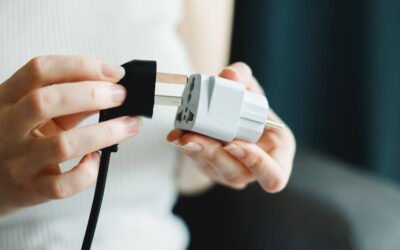

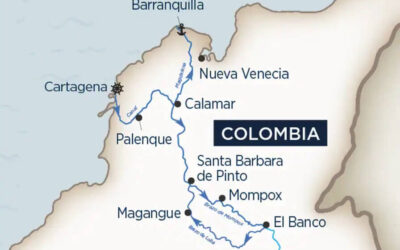
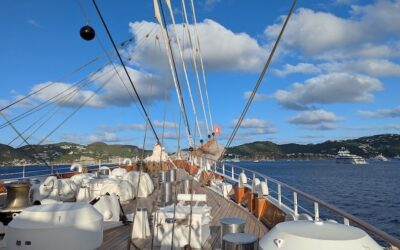
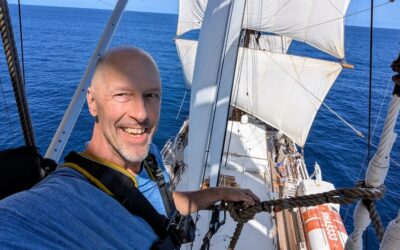
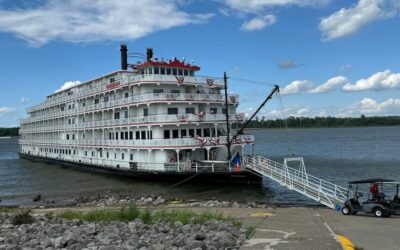
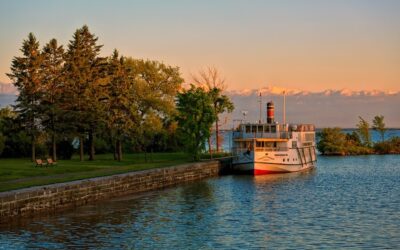
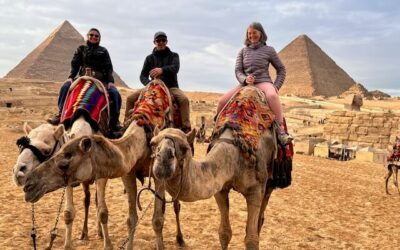
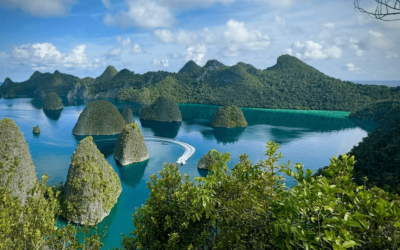
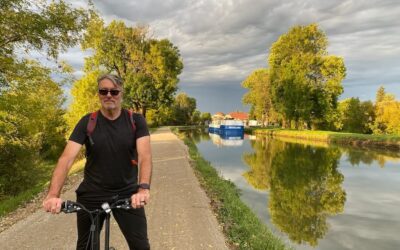

Oh my! What a brilliant piece of creative, informative and engaging journalism! Anne Kalosh is the ultimate writer, exquisitely weaving a great story around all the necessary facts for someone who is seeking the ideal adventure, The itinerary and ship sound perfect! Very ominous indeed, about the tsunami and how delightful that you almost walked into your expedition leader following those ice formations — a perfect way to meet someone! And, as ever, Anne looks dashing in her cashmere top and scarf! Thank you for the best read I’ve enjoyed in quite some time! Epic! Yet another reason QuirkyCruise is the best resource for small ship cruising.
Well said Peter, I couldn’t agree more! Anne’s evocative story brings such a remote and little-known destination into our hearts and minds, thank you Peter!! And Anne!